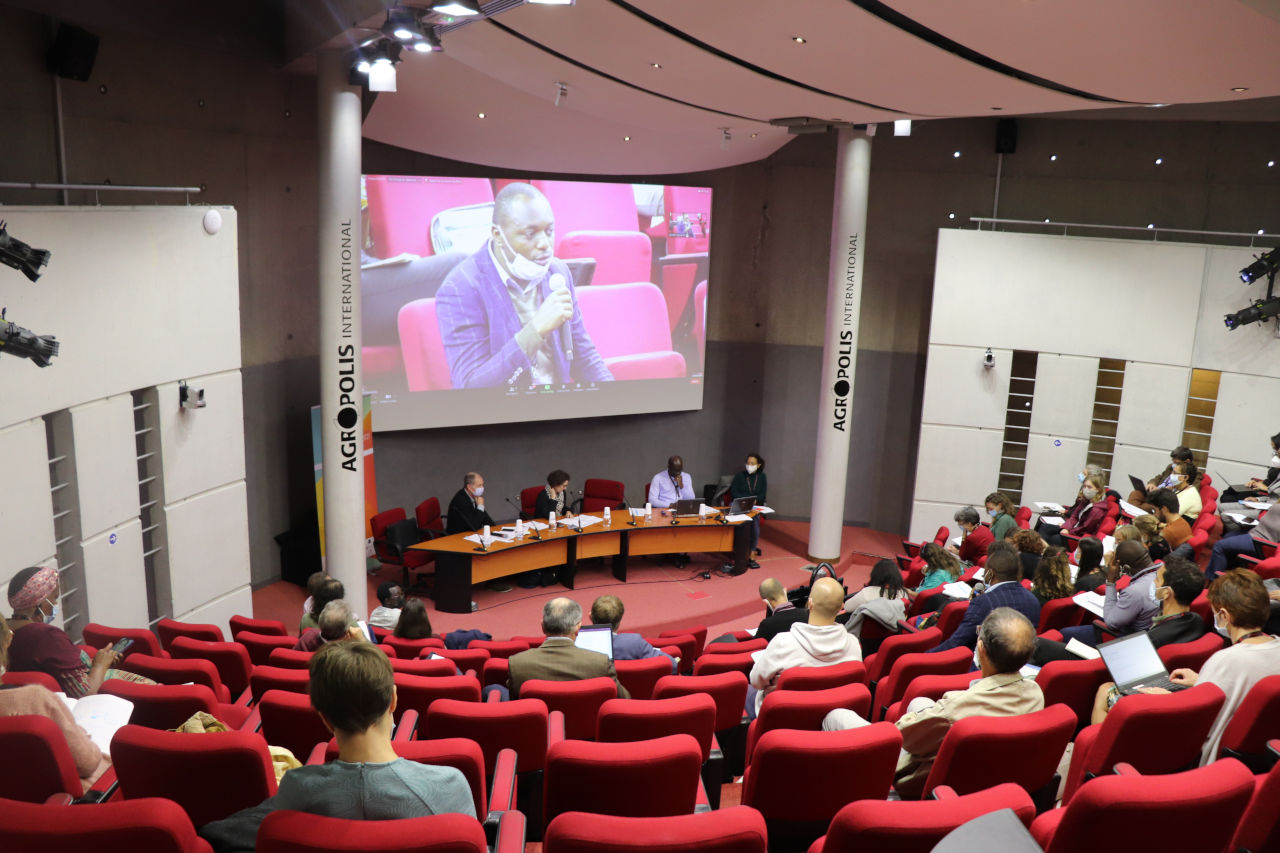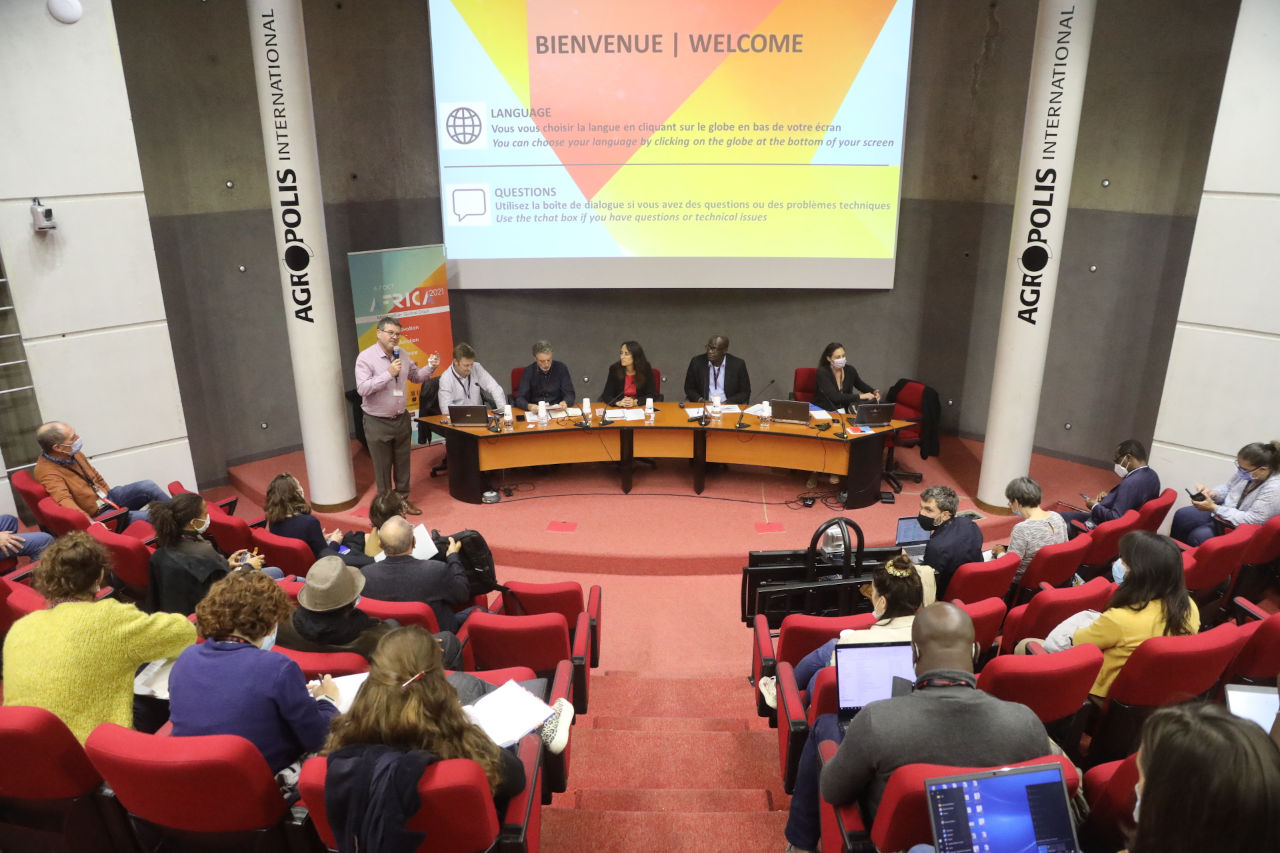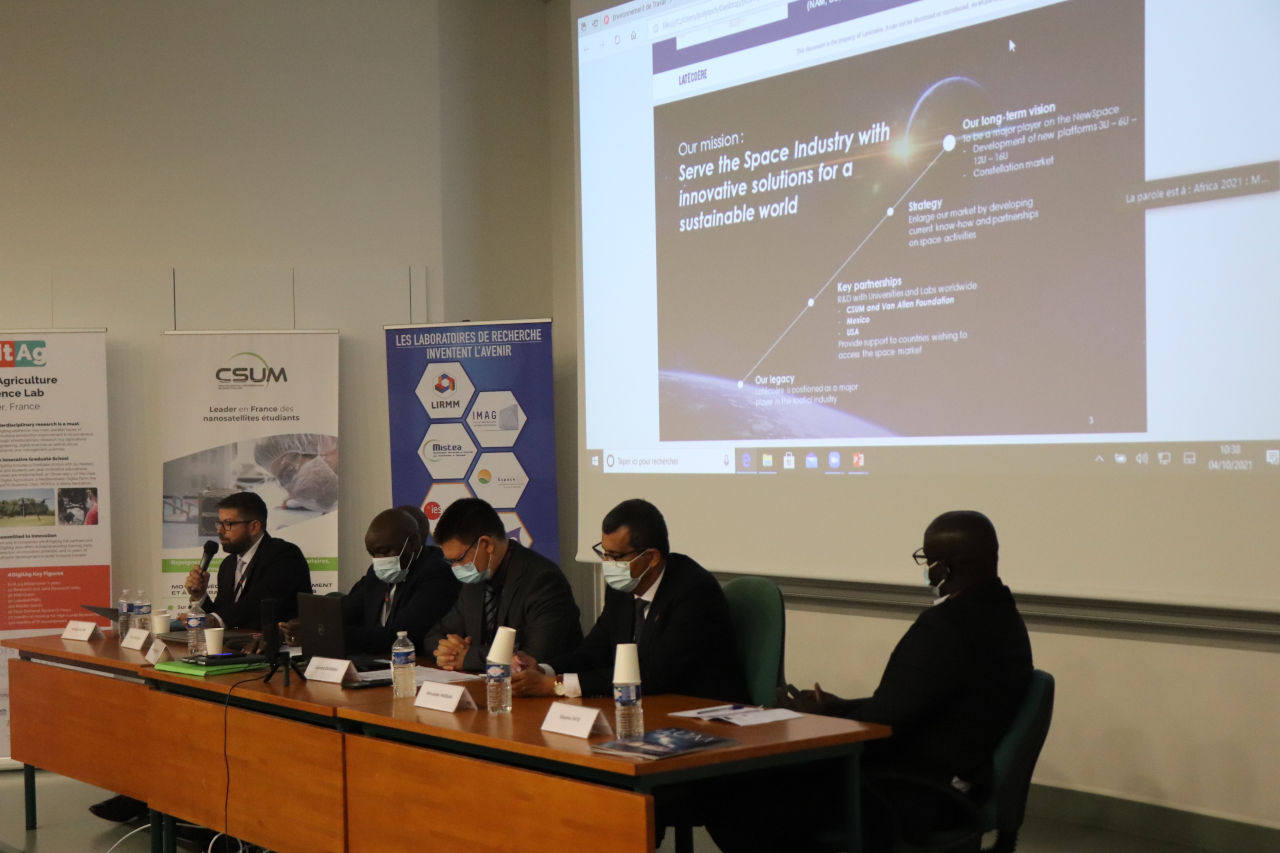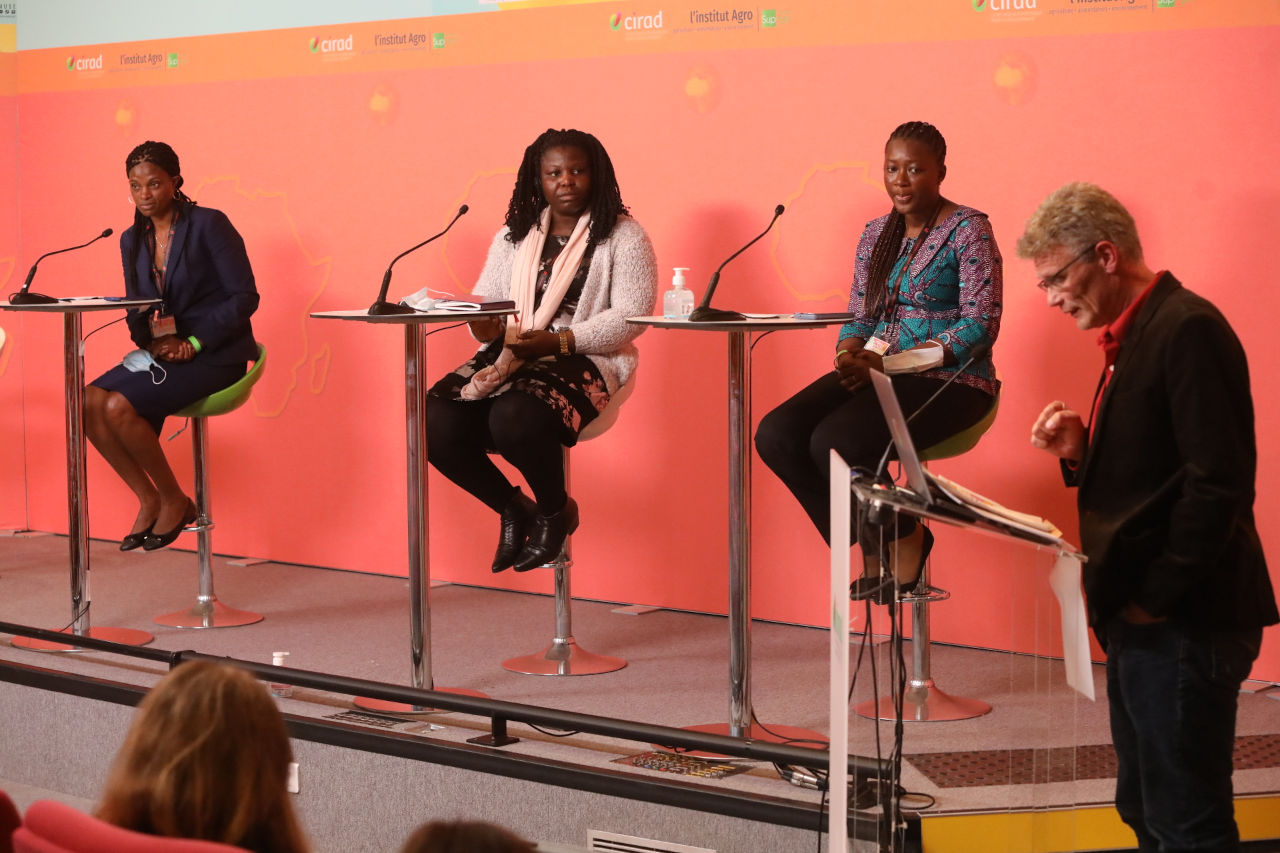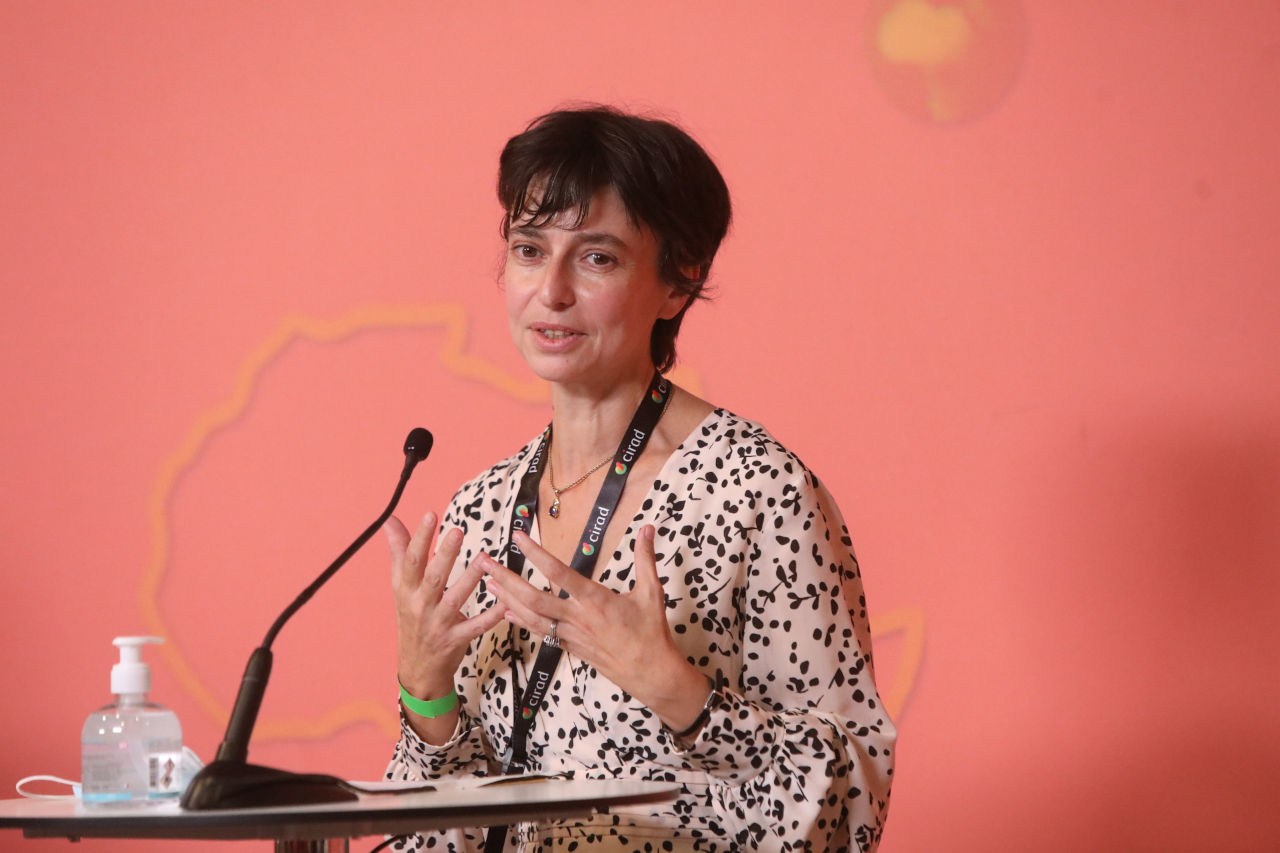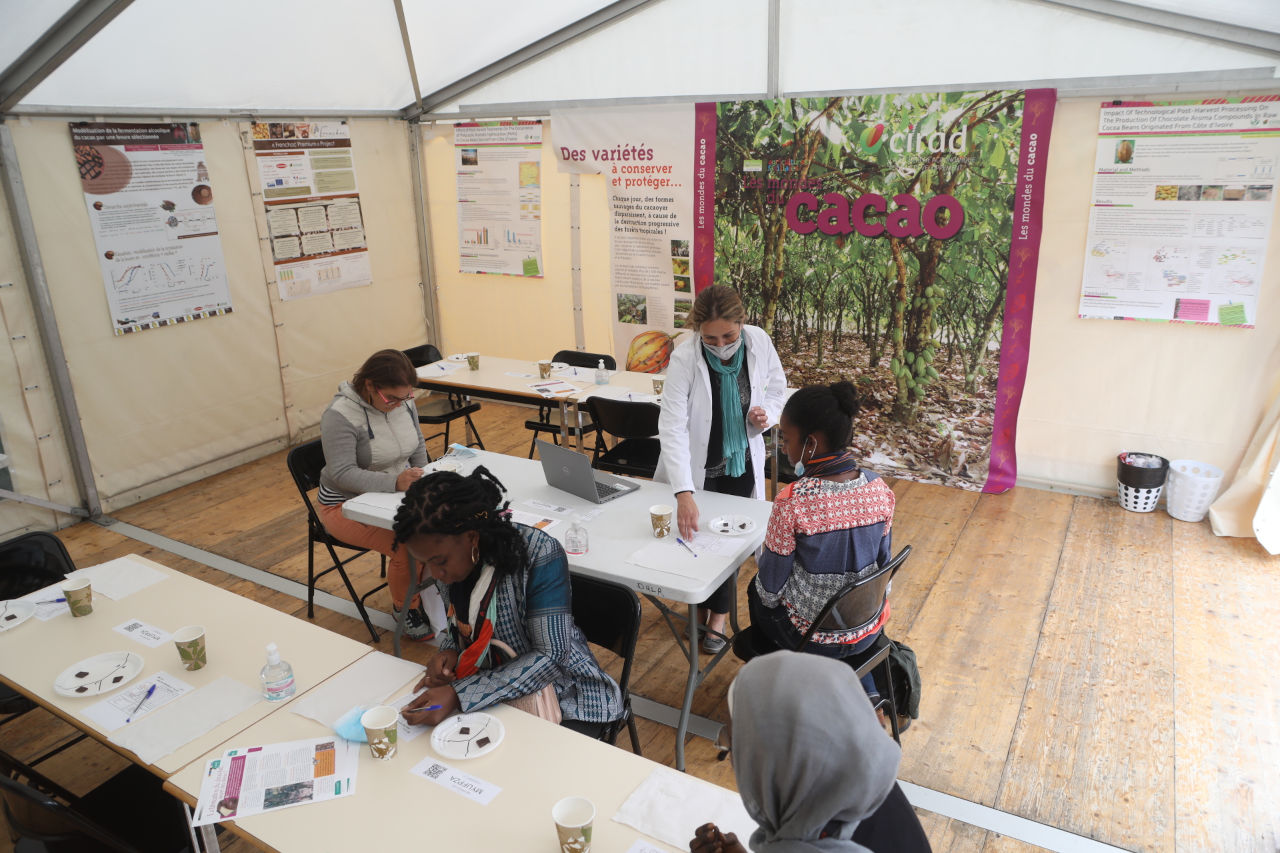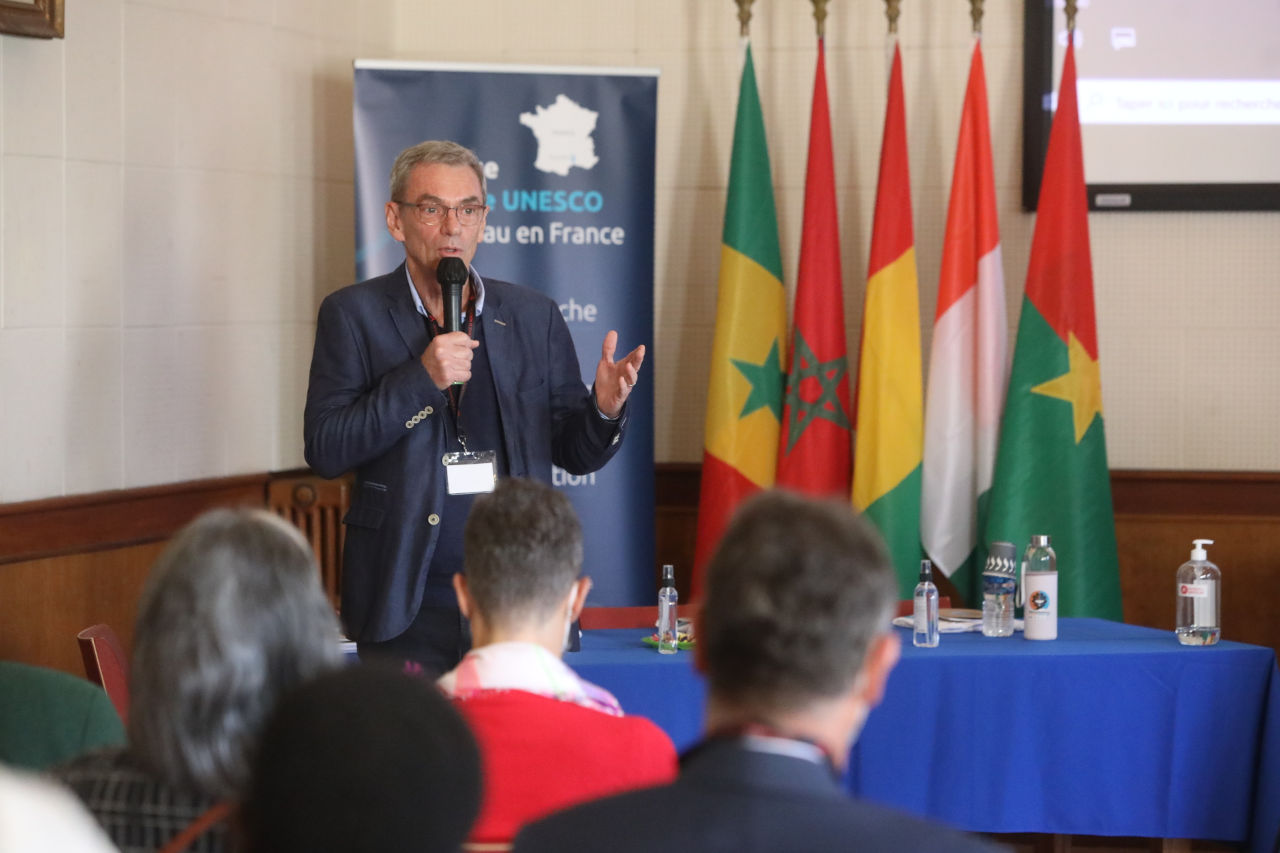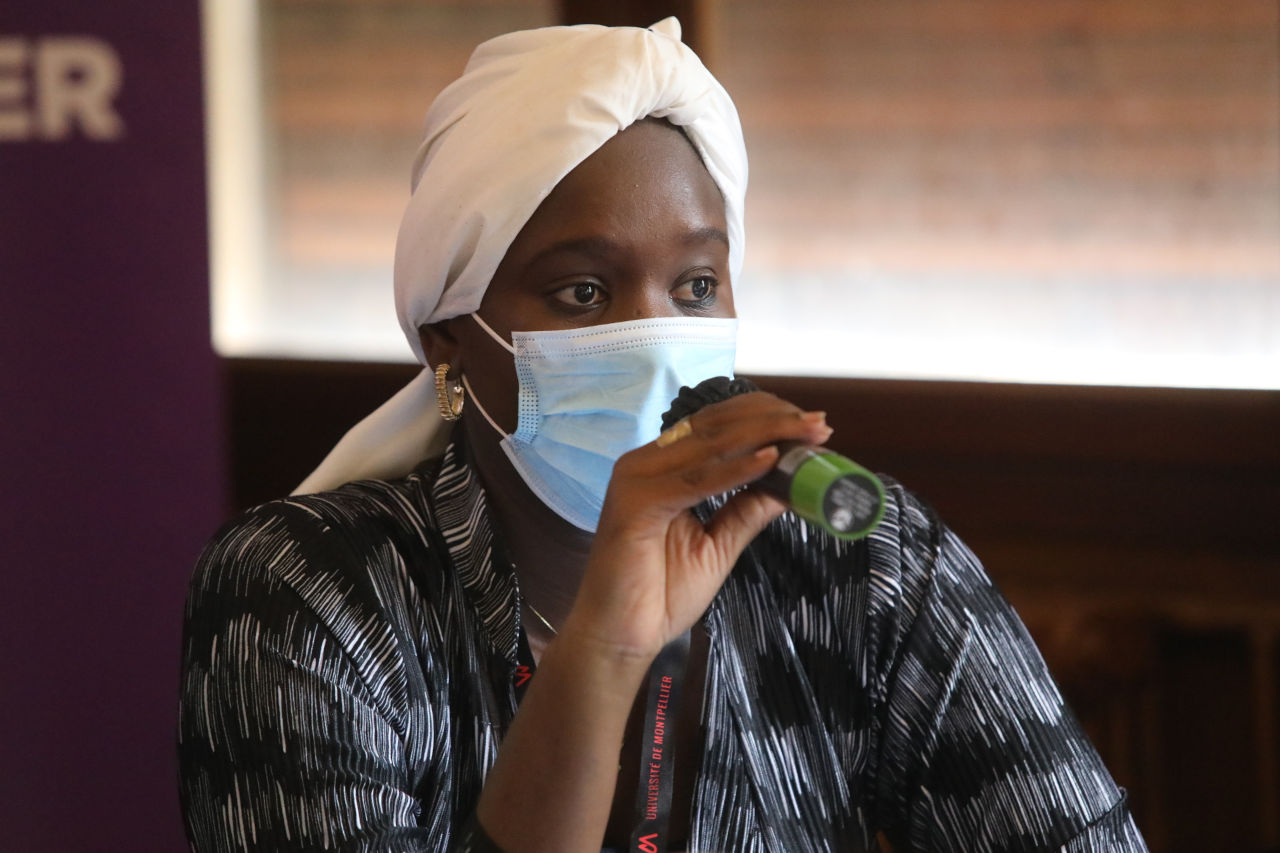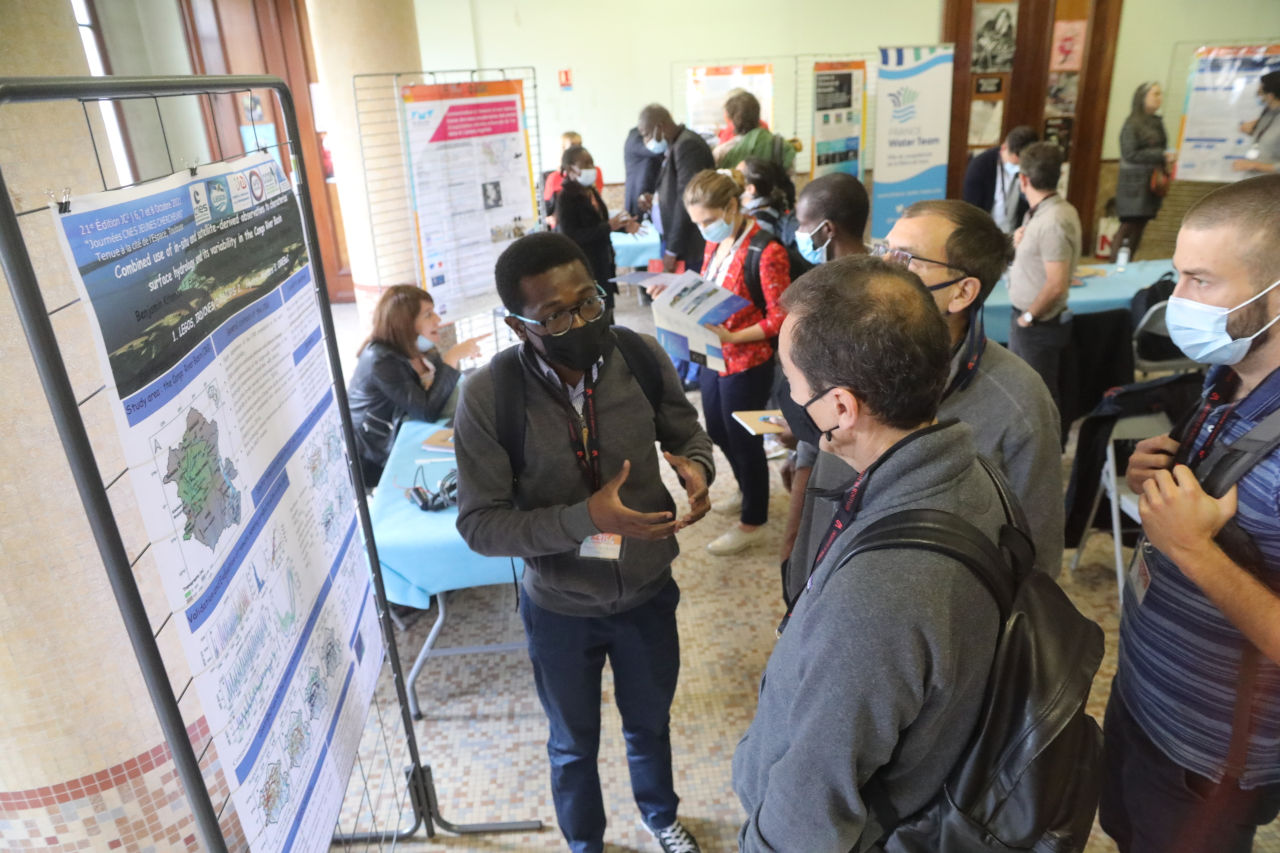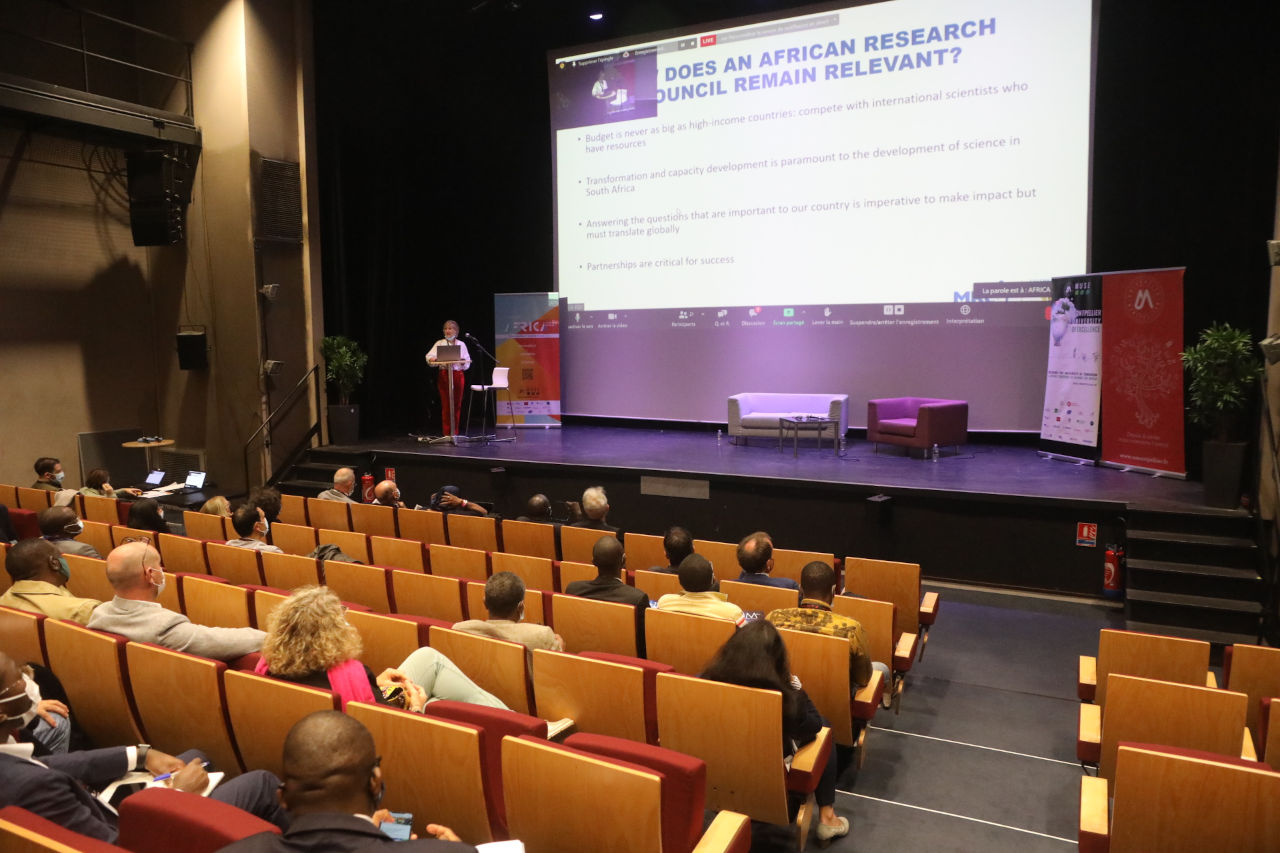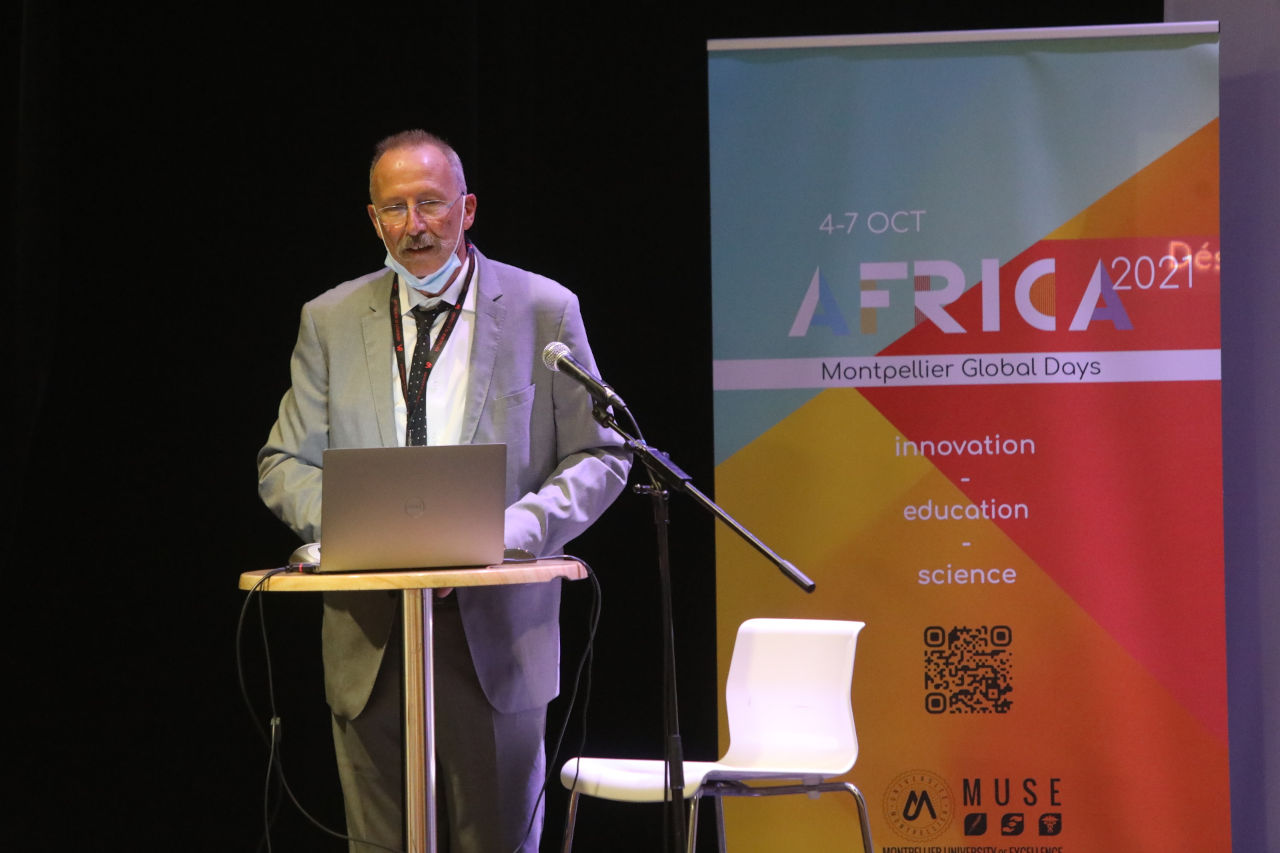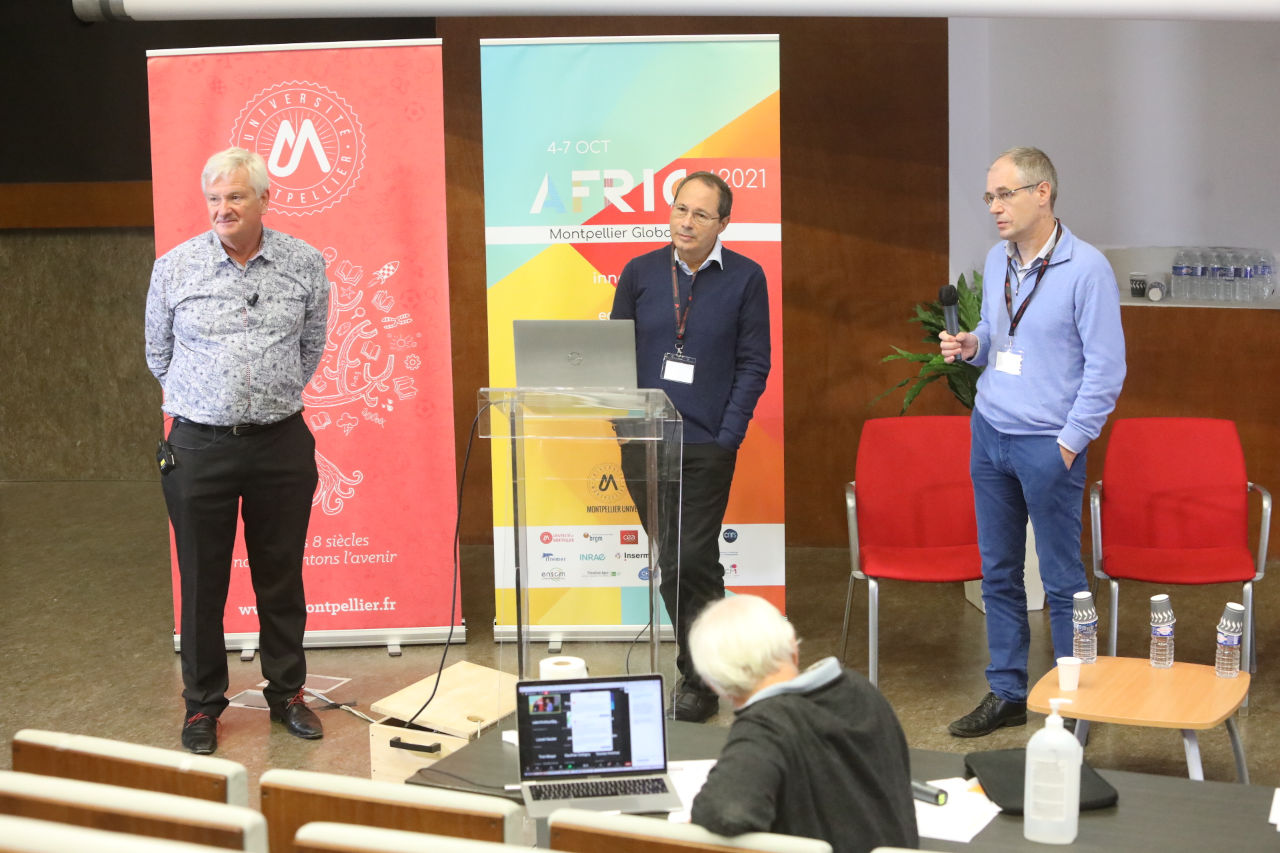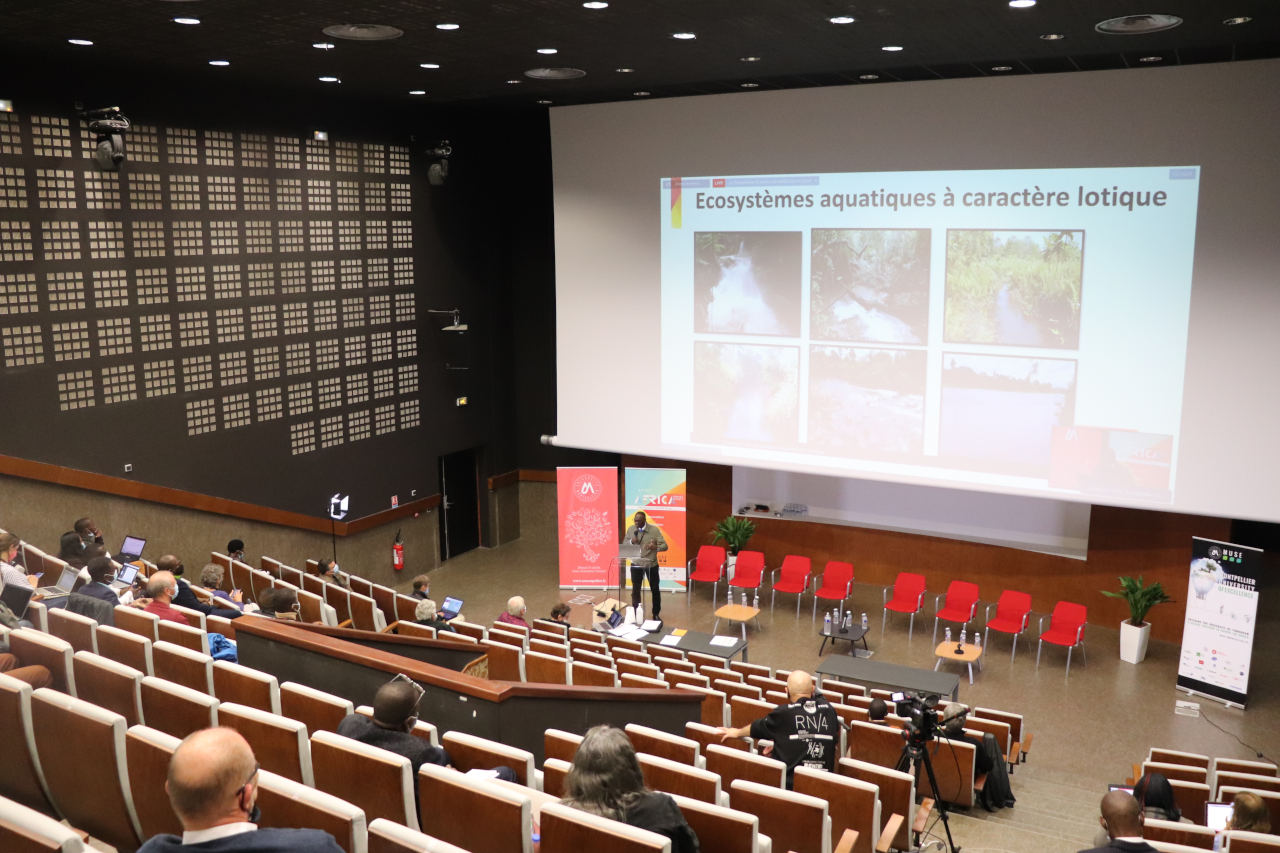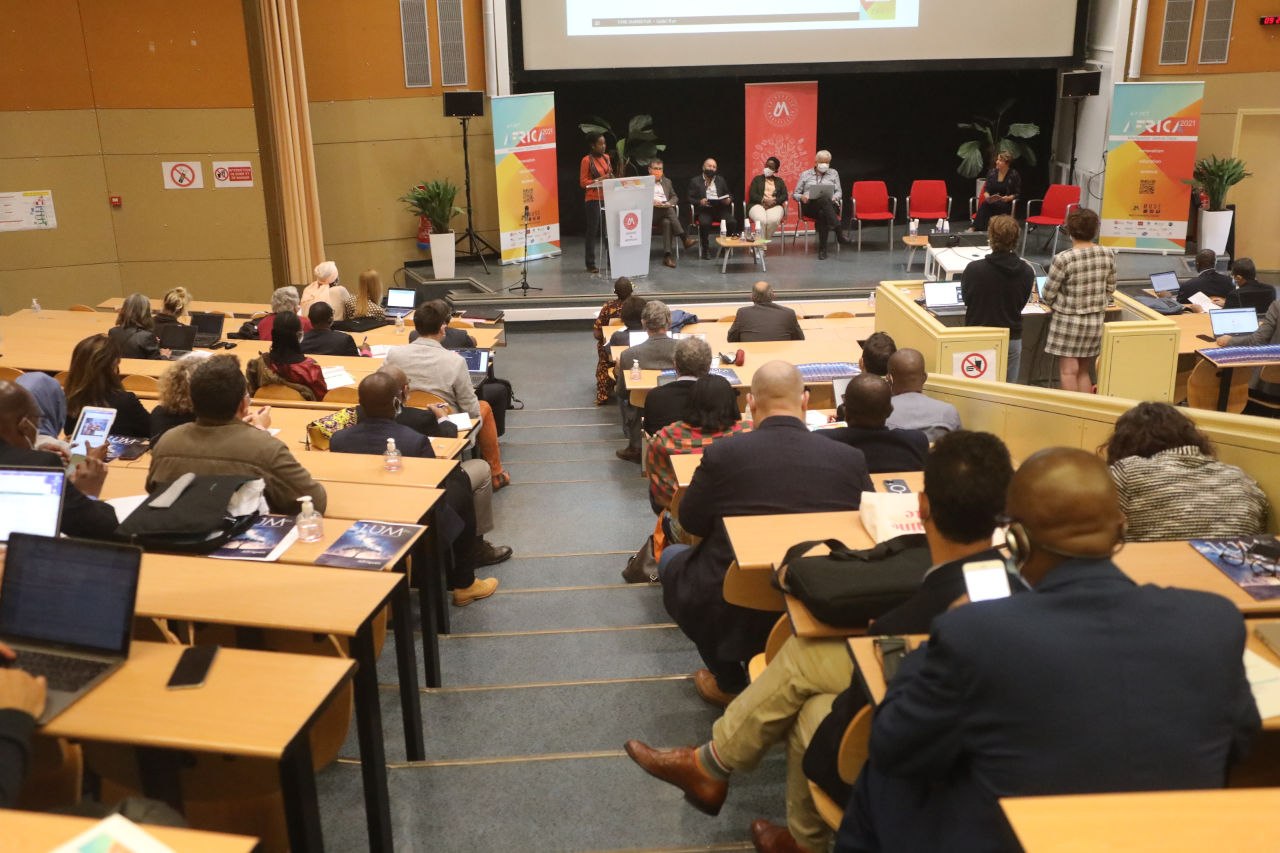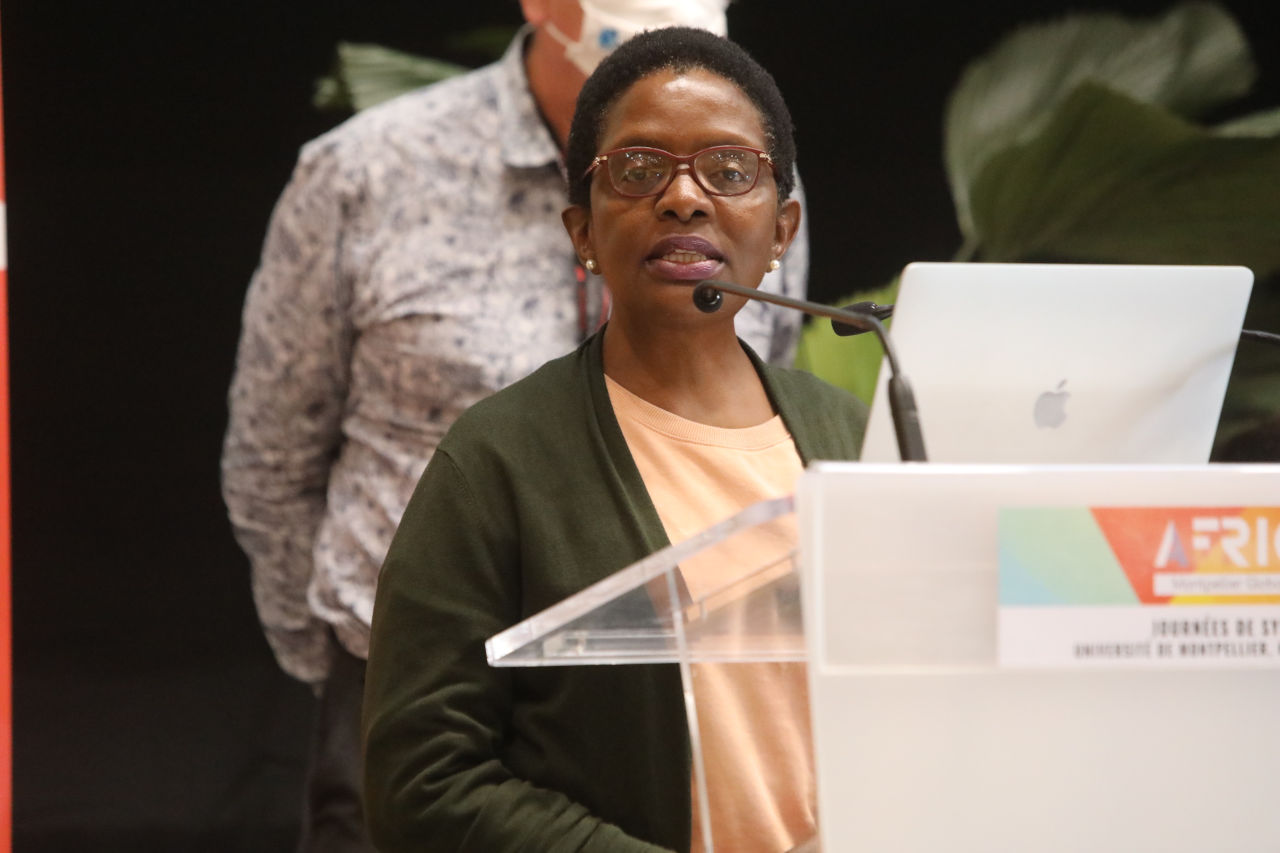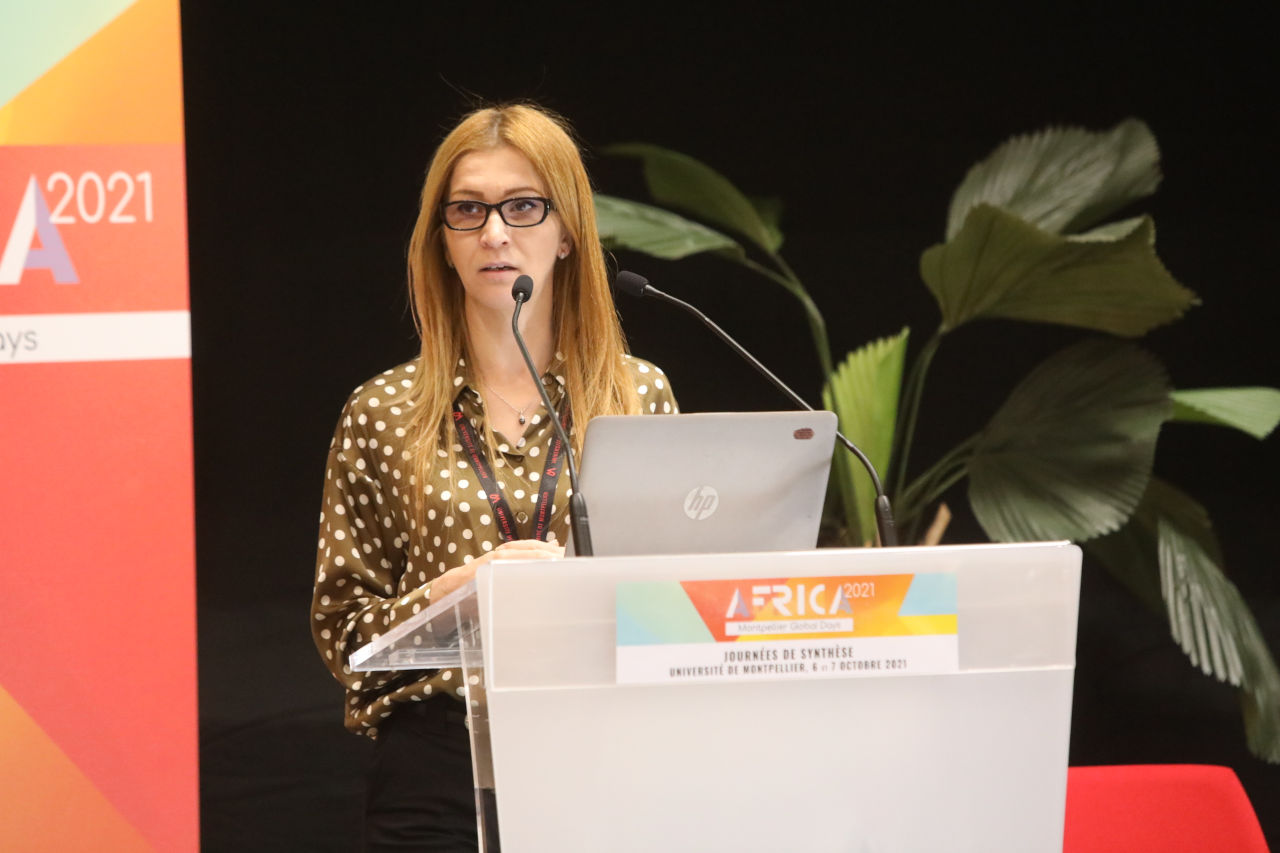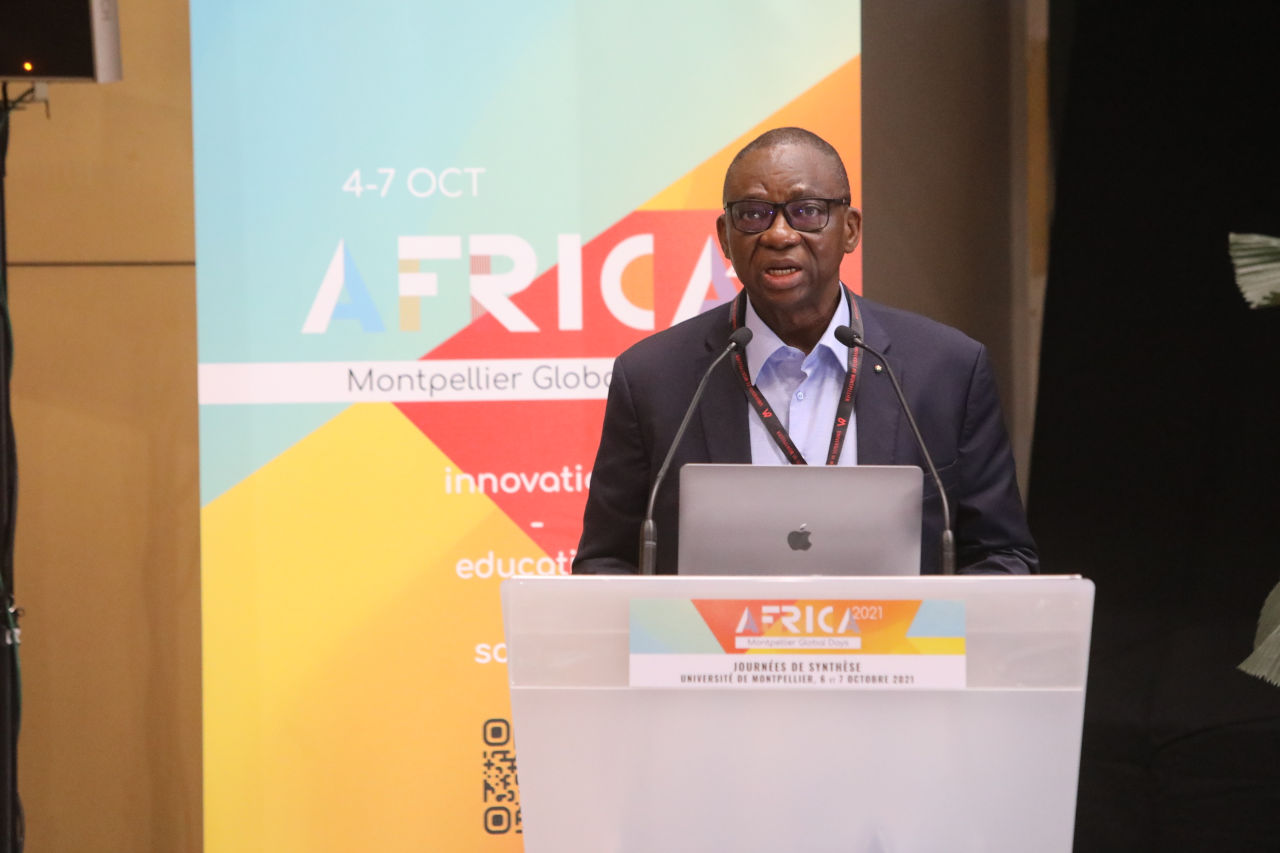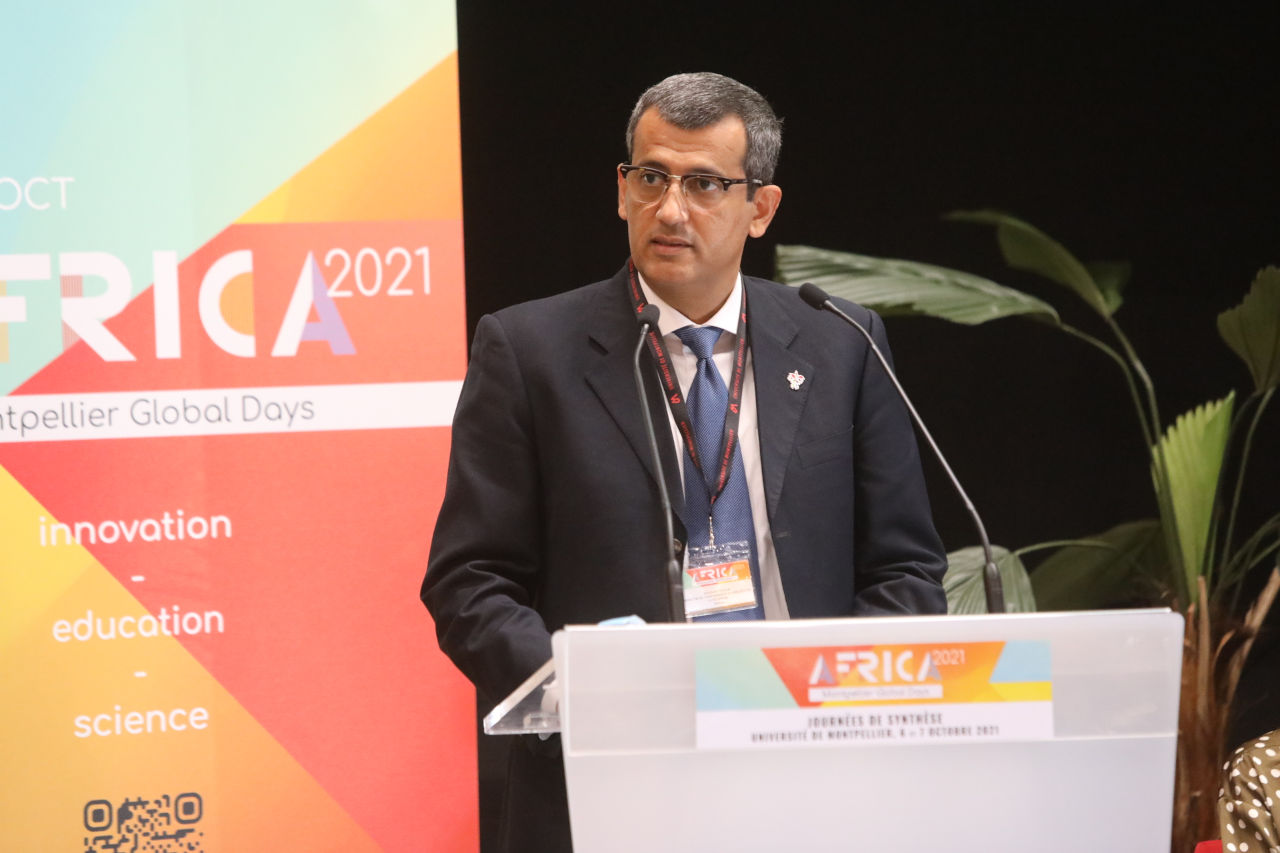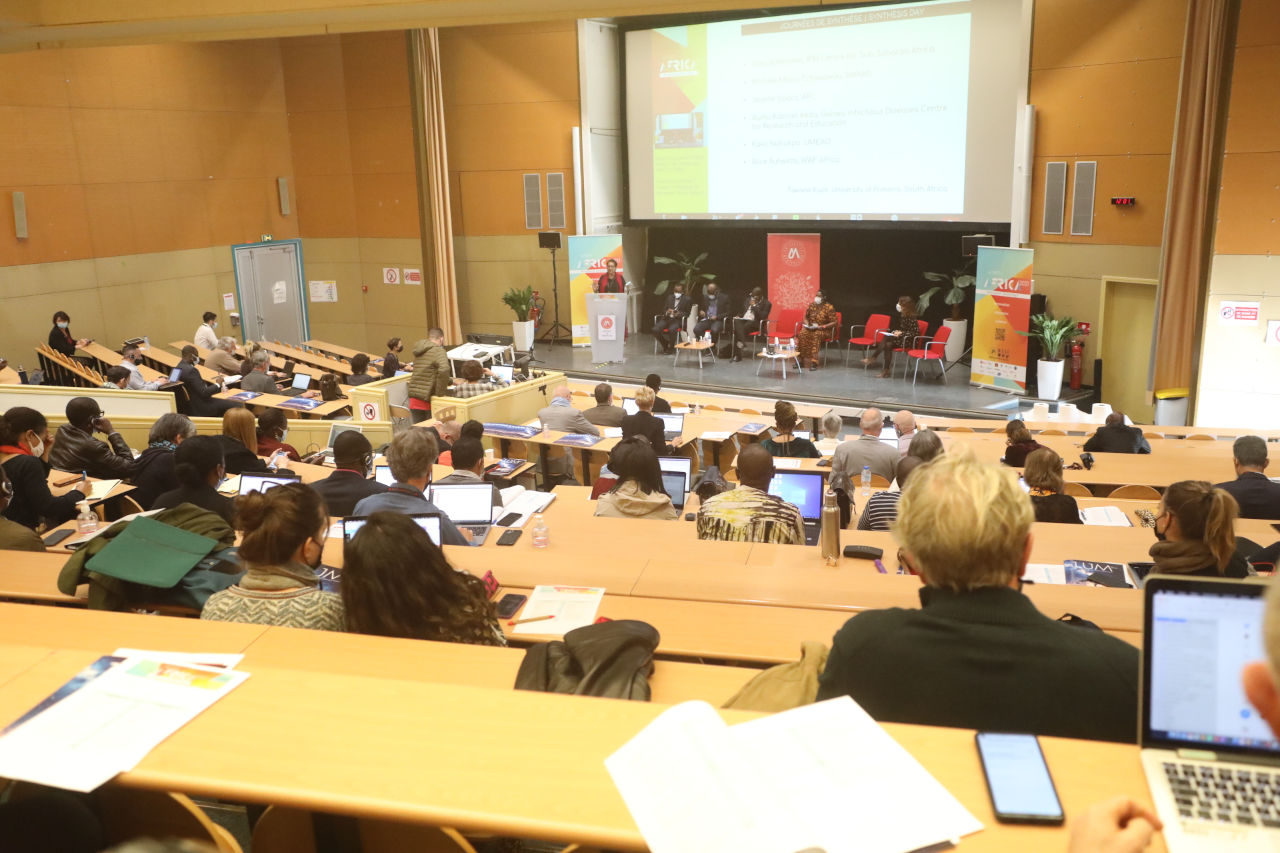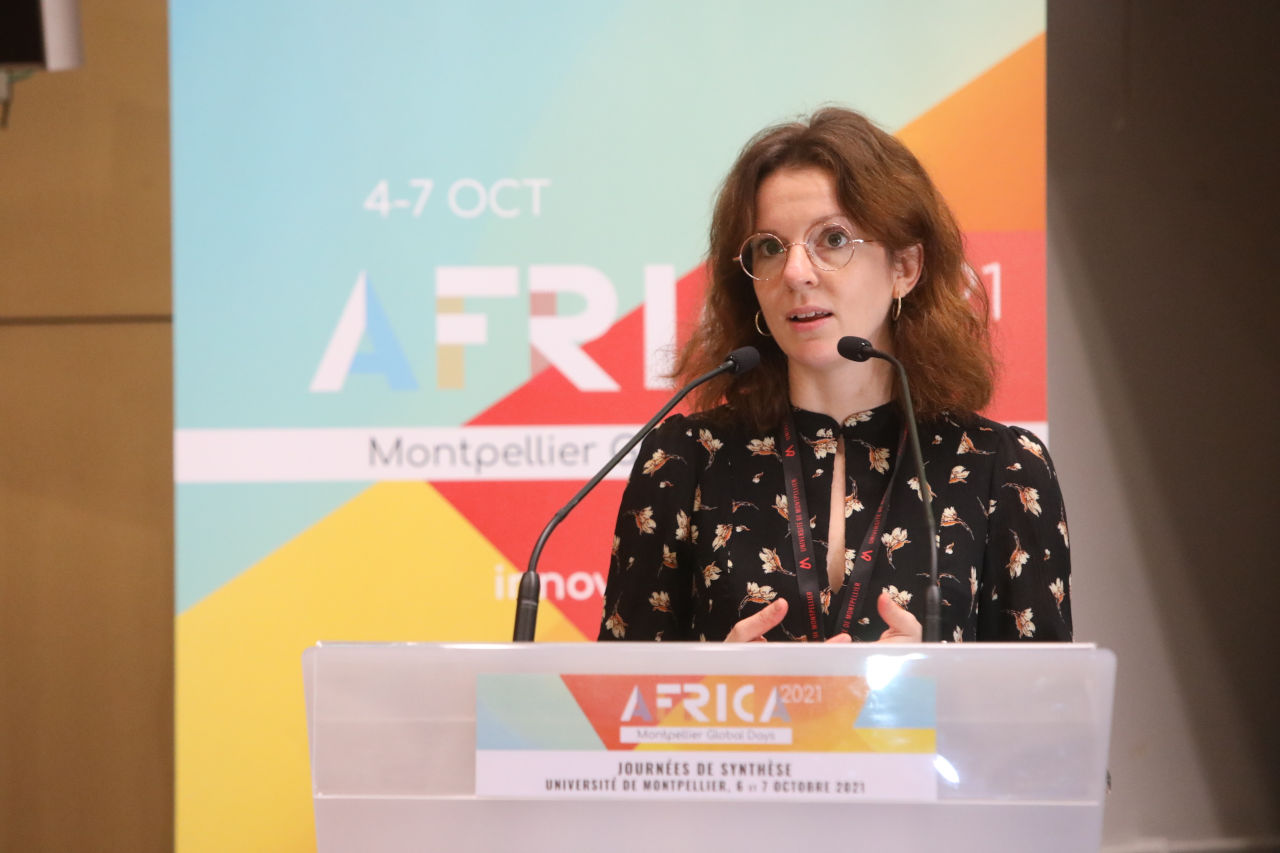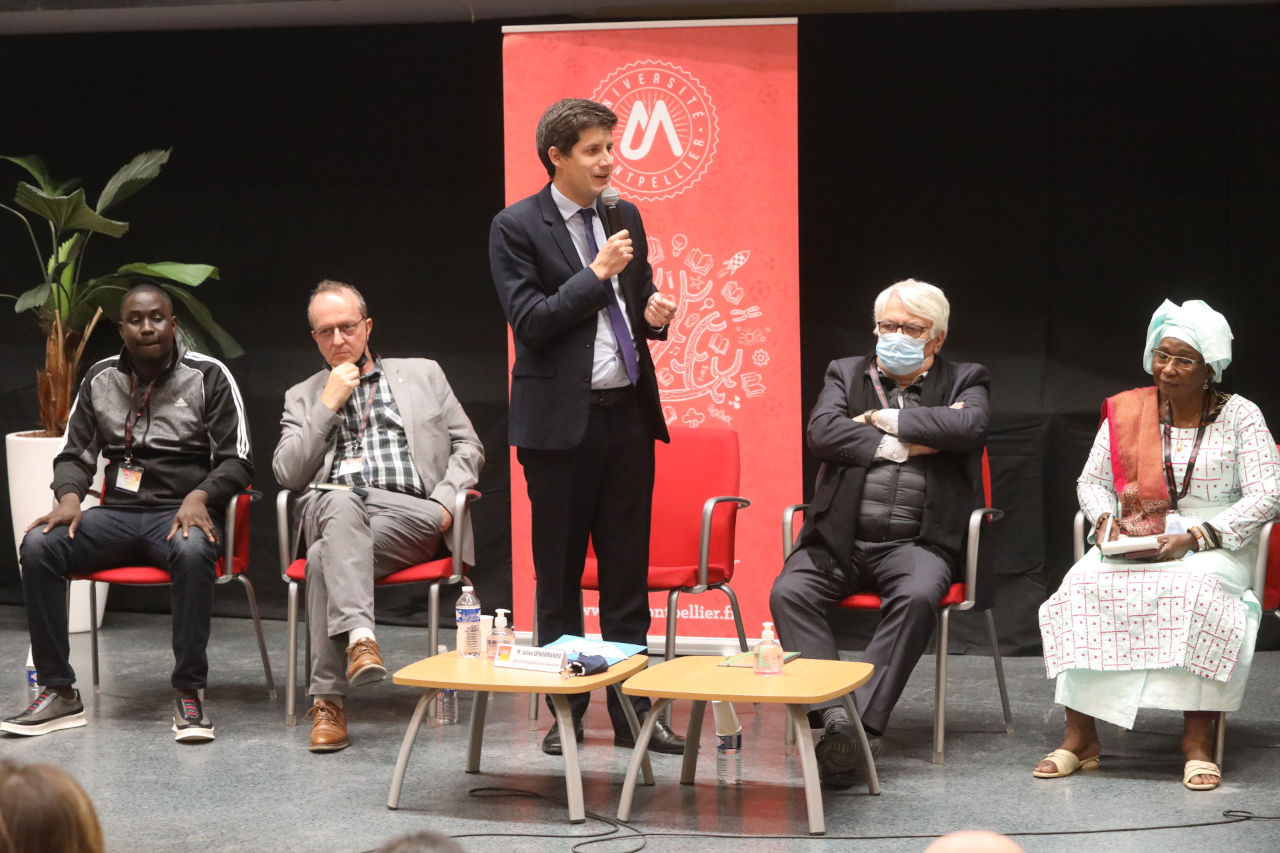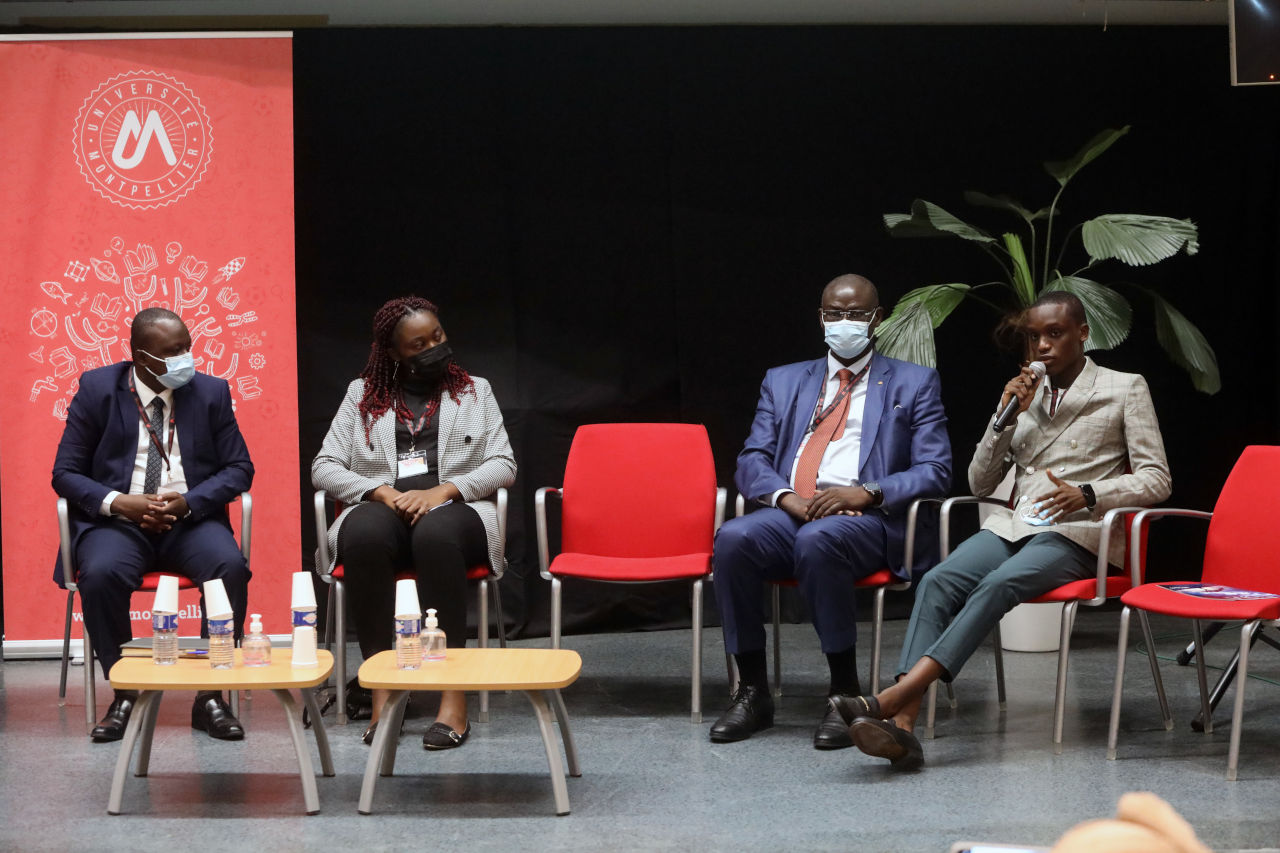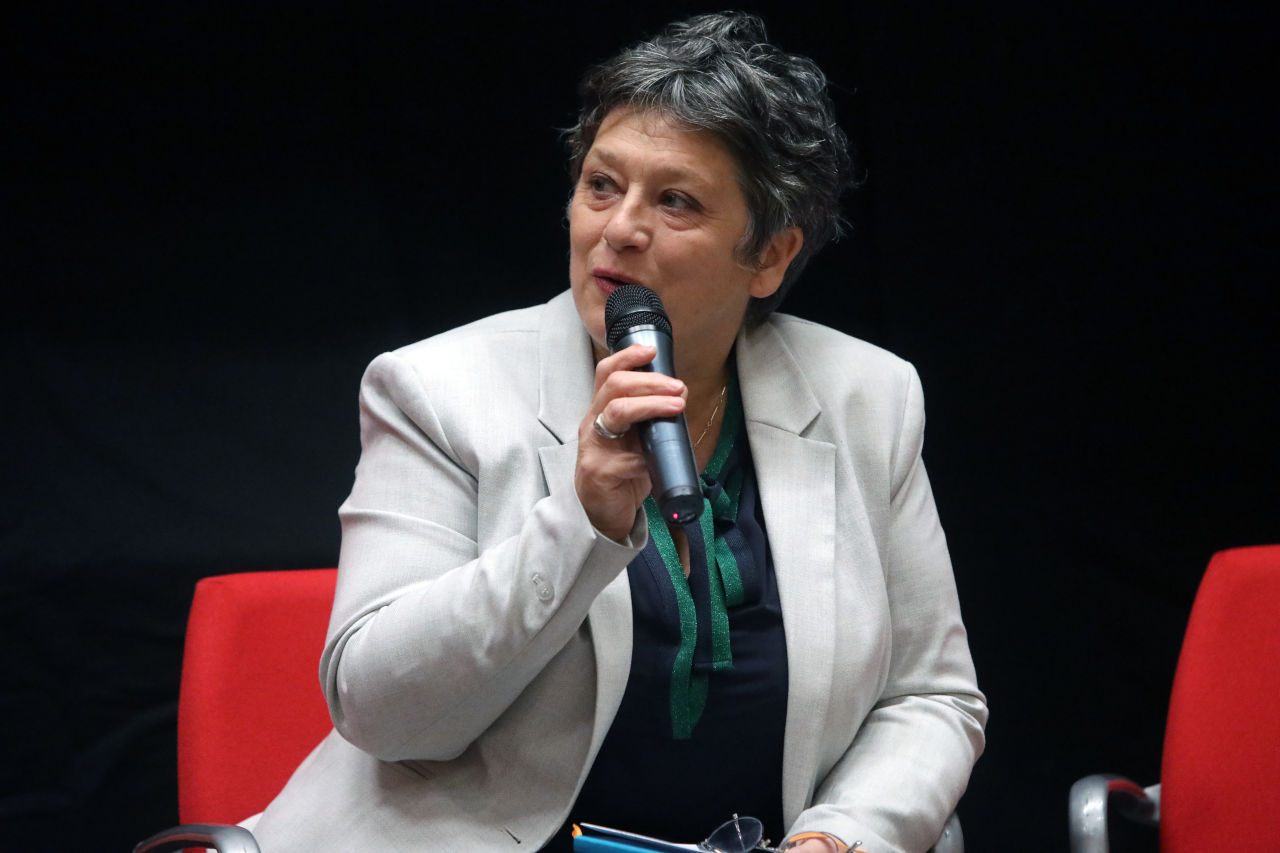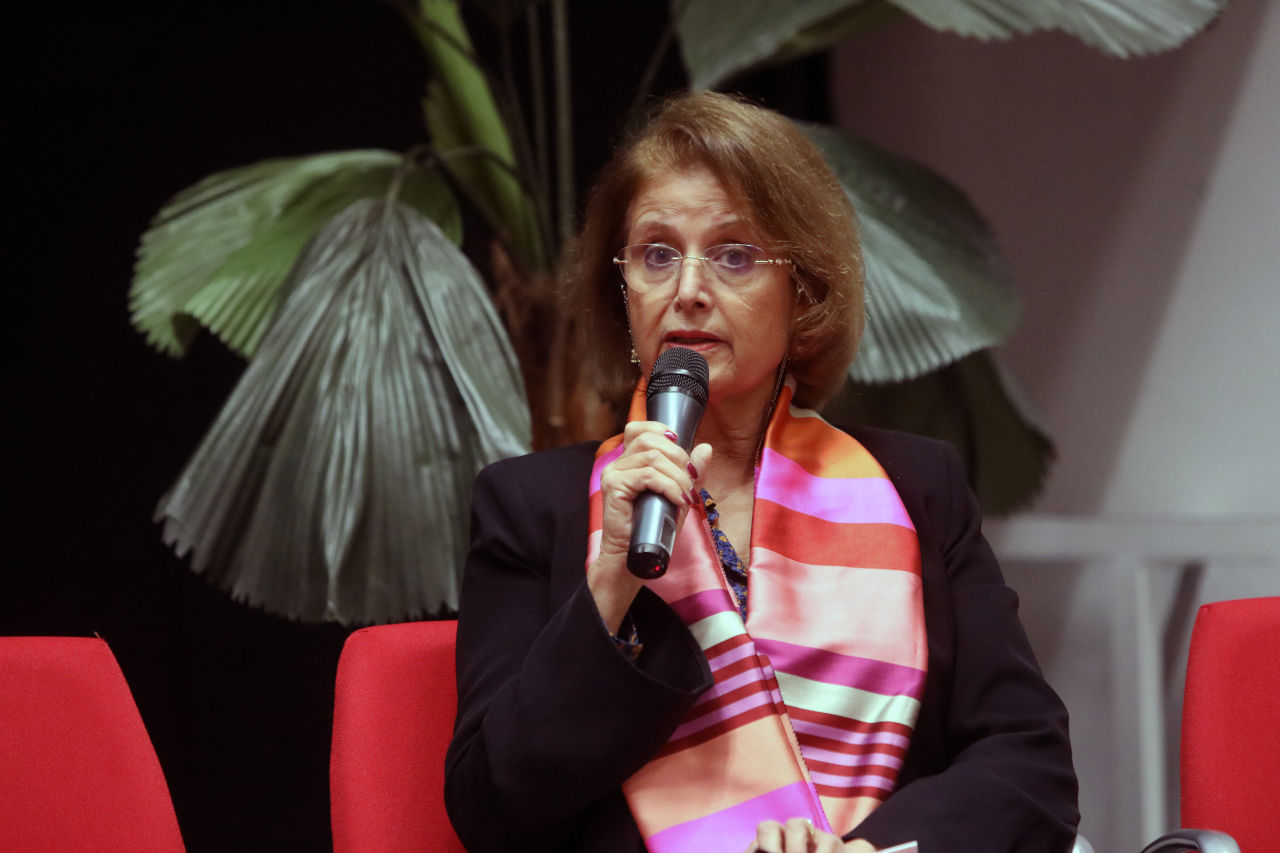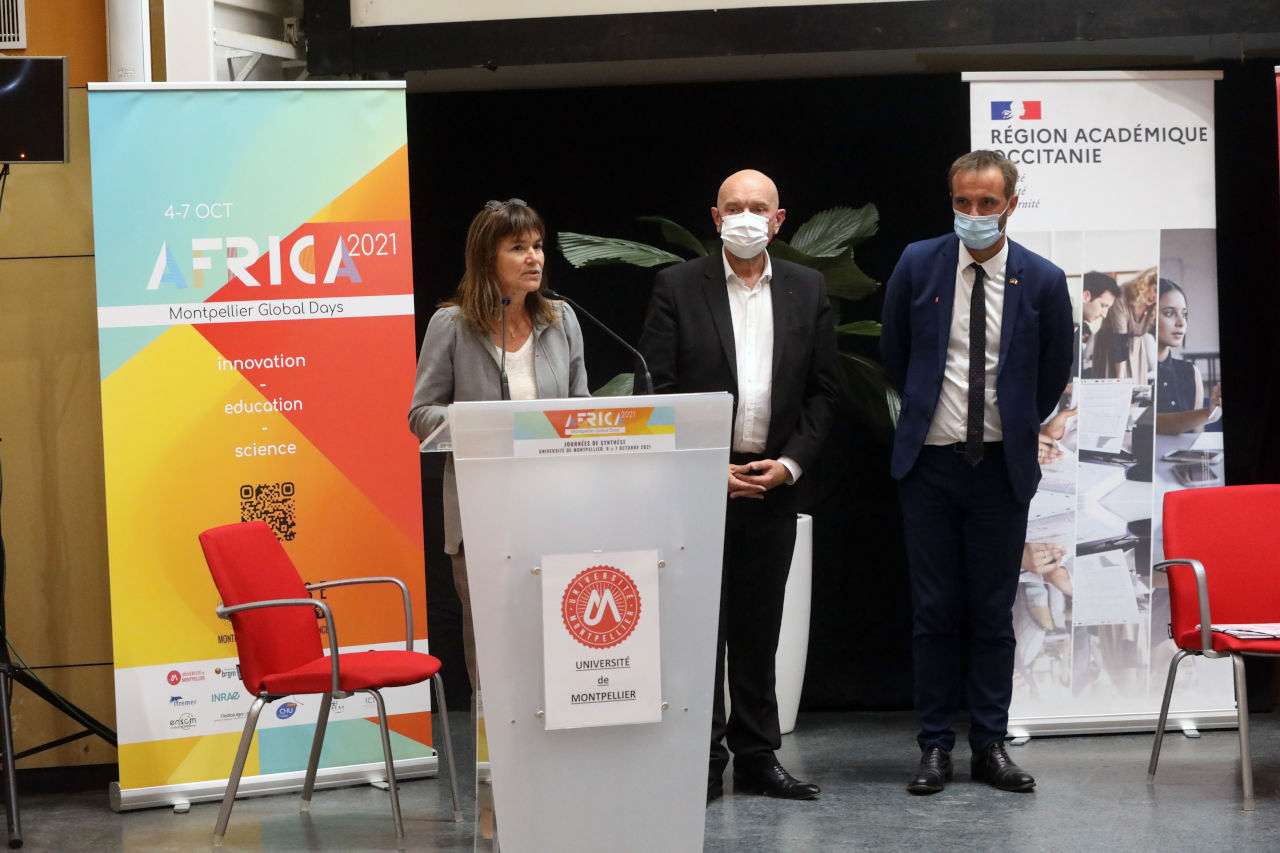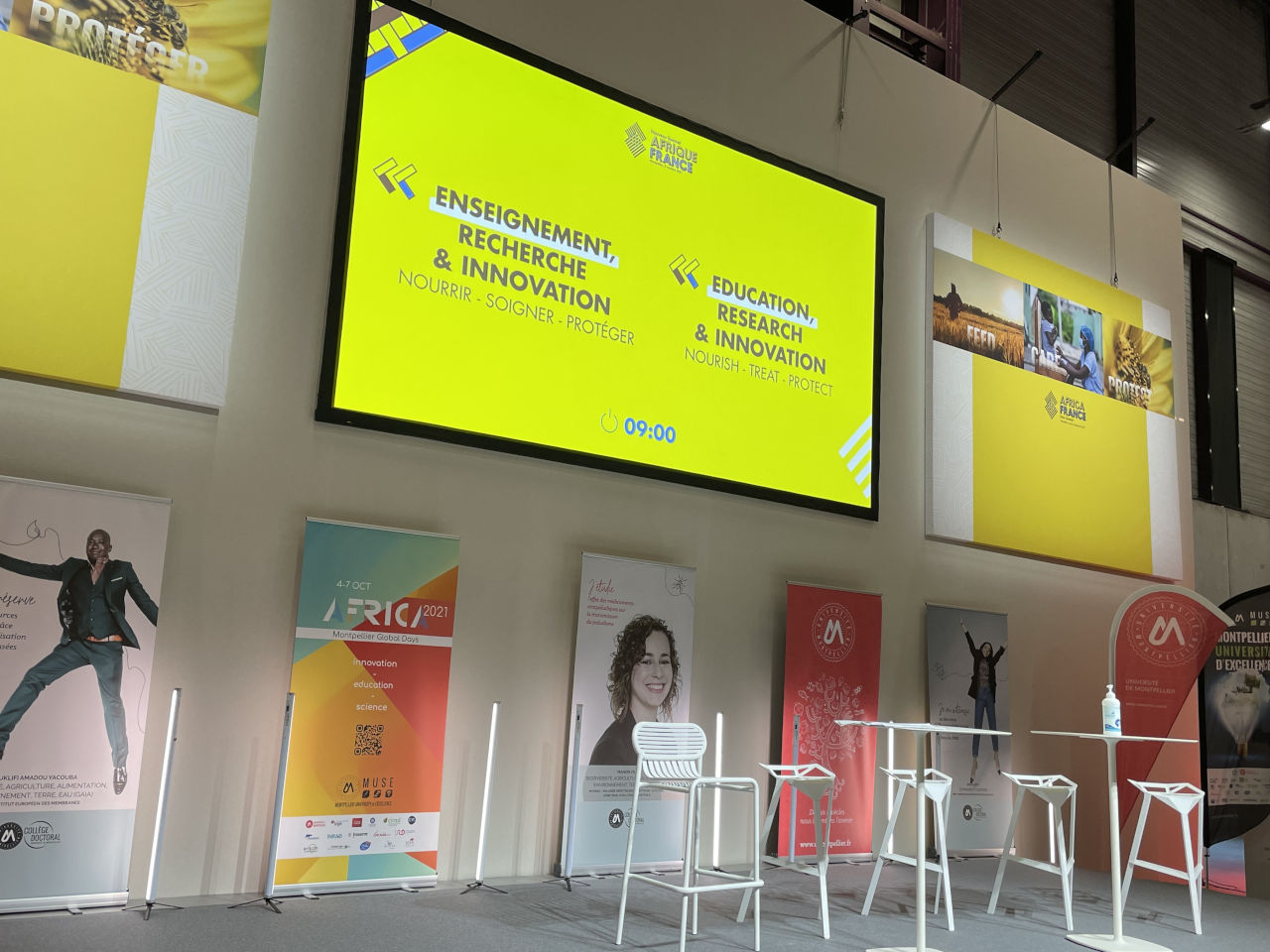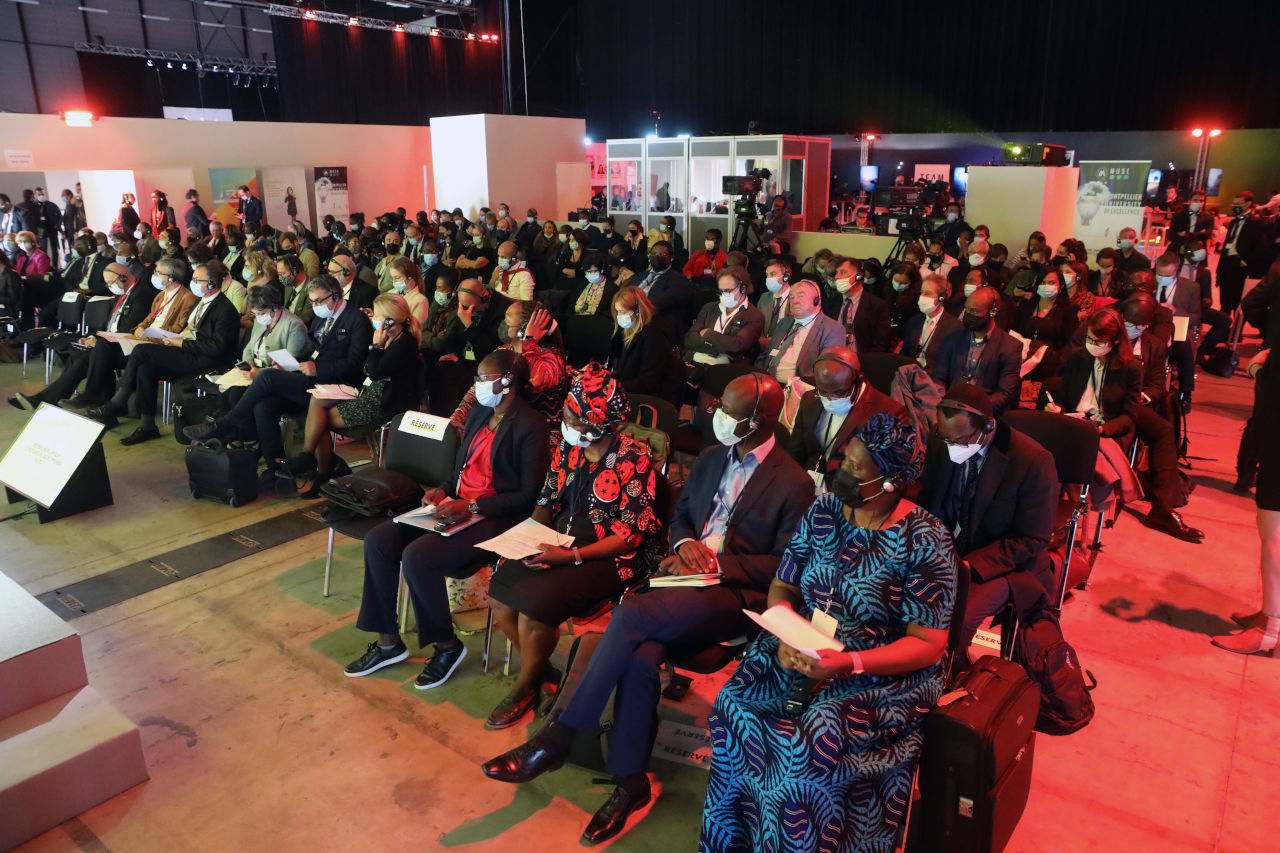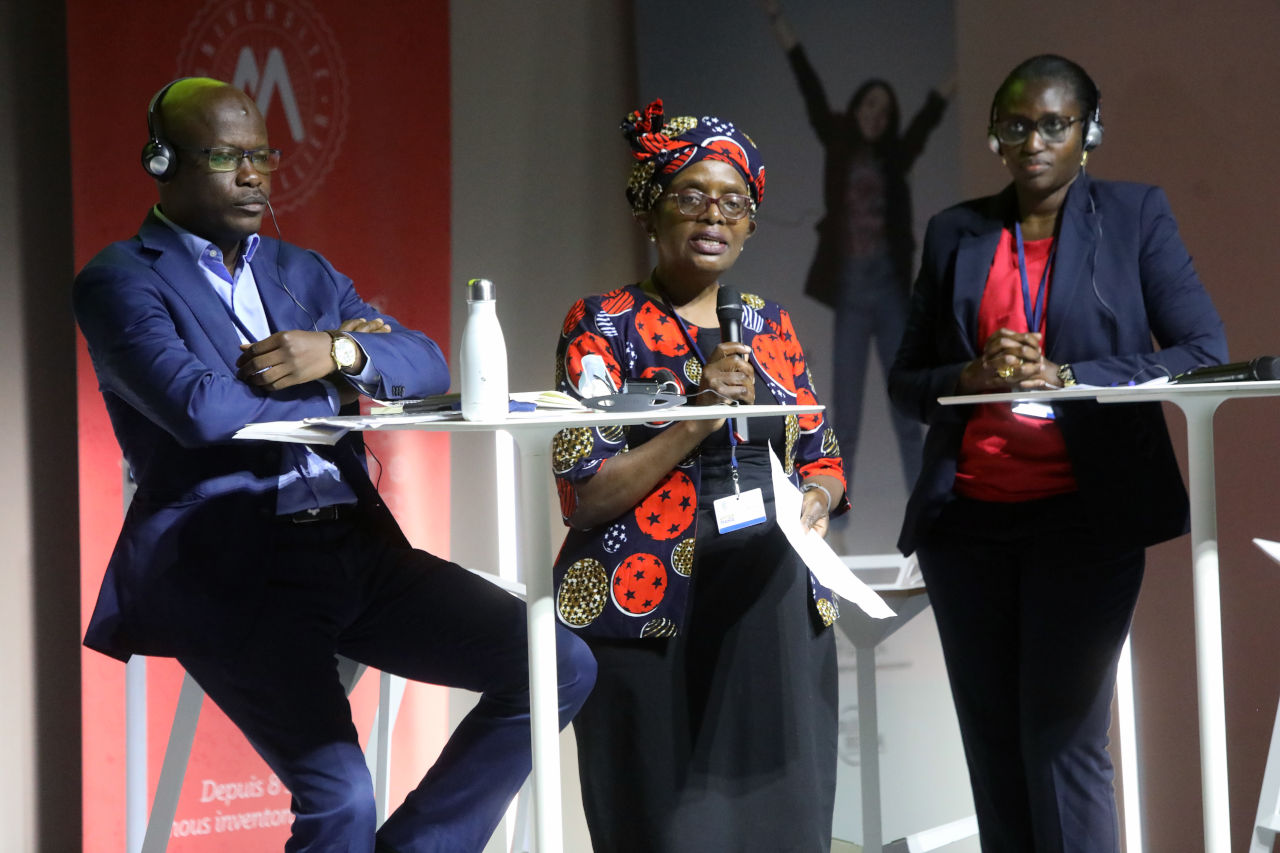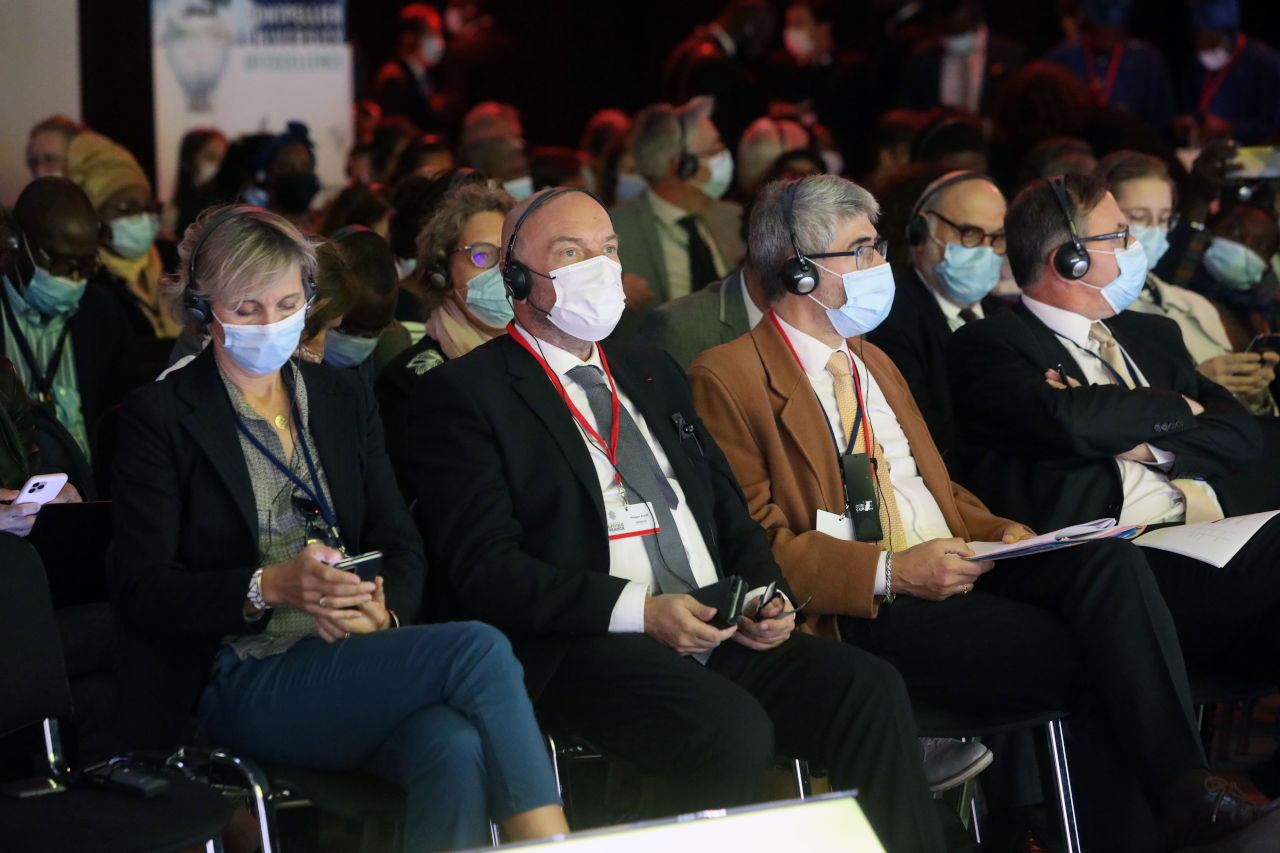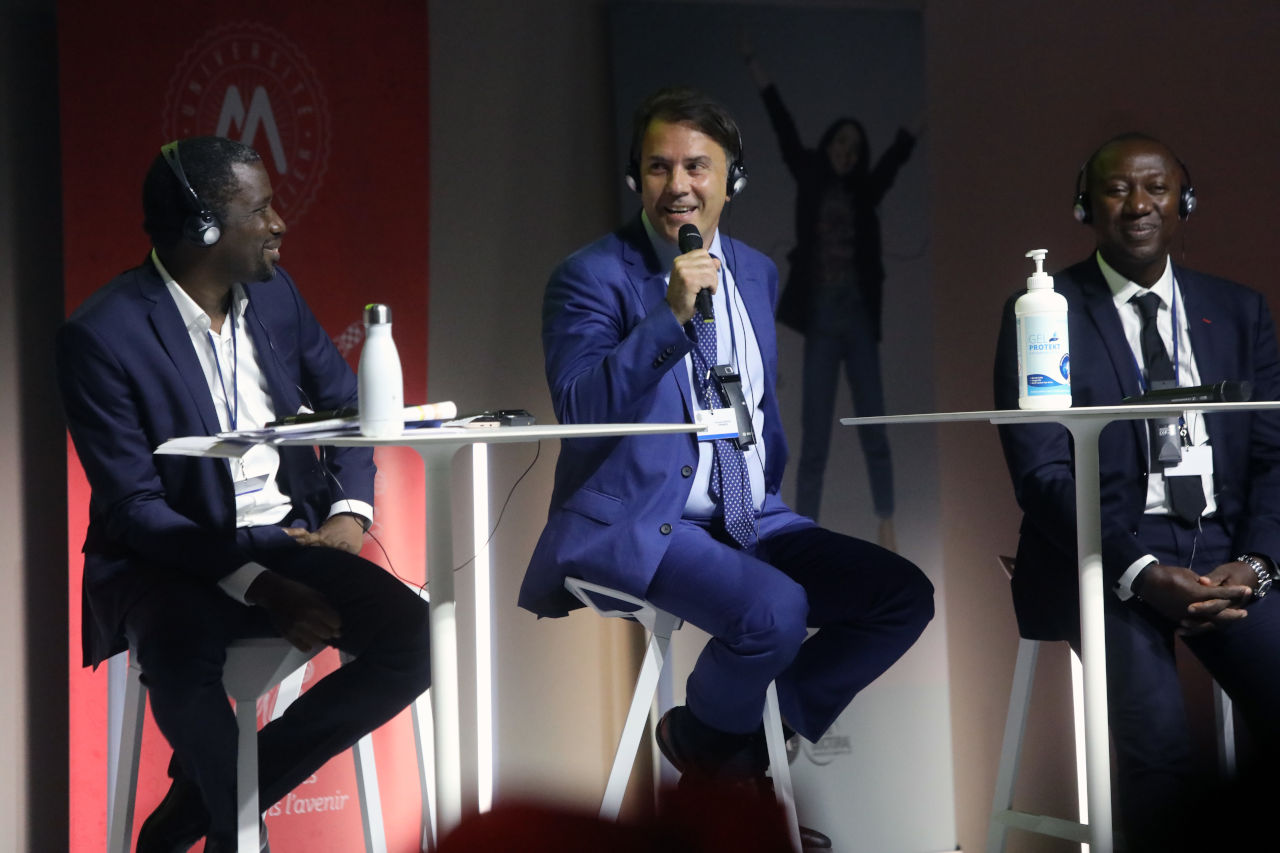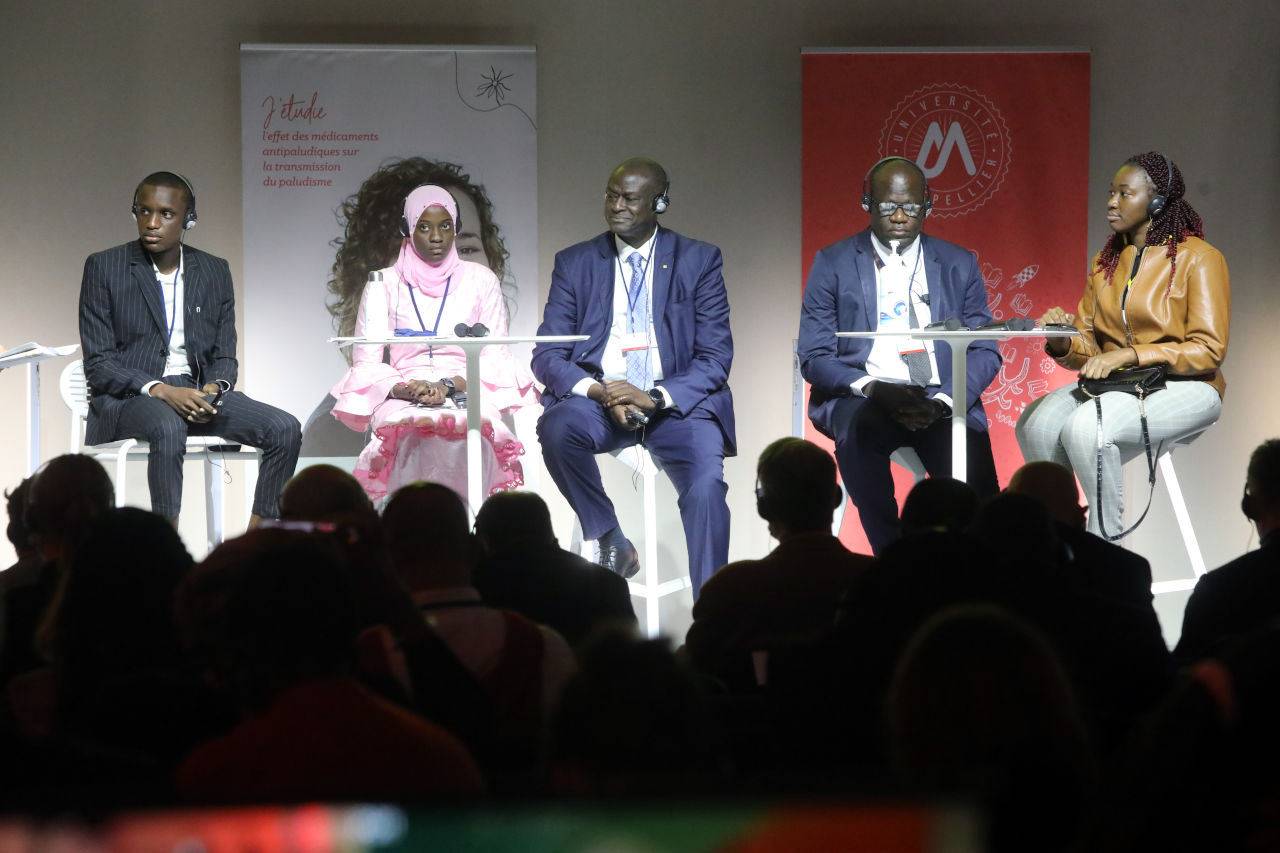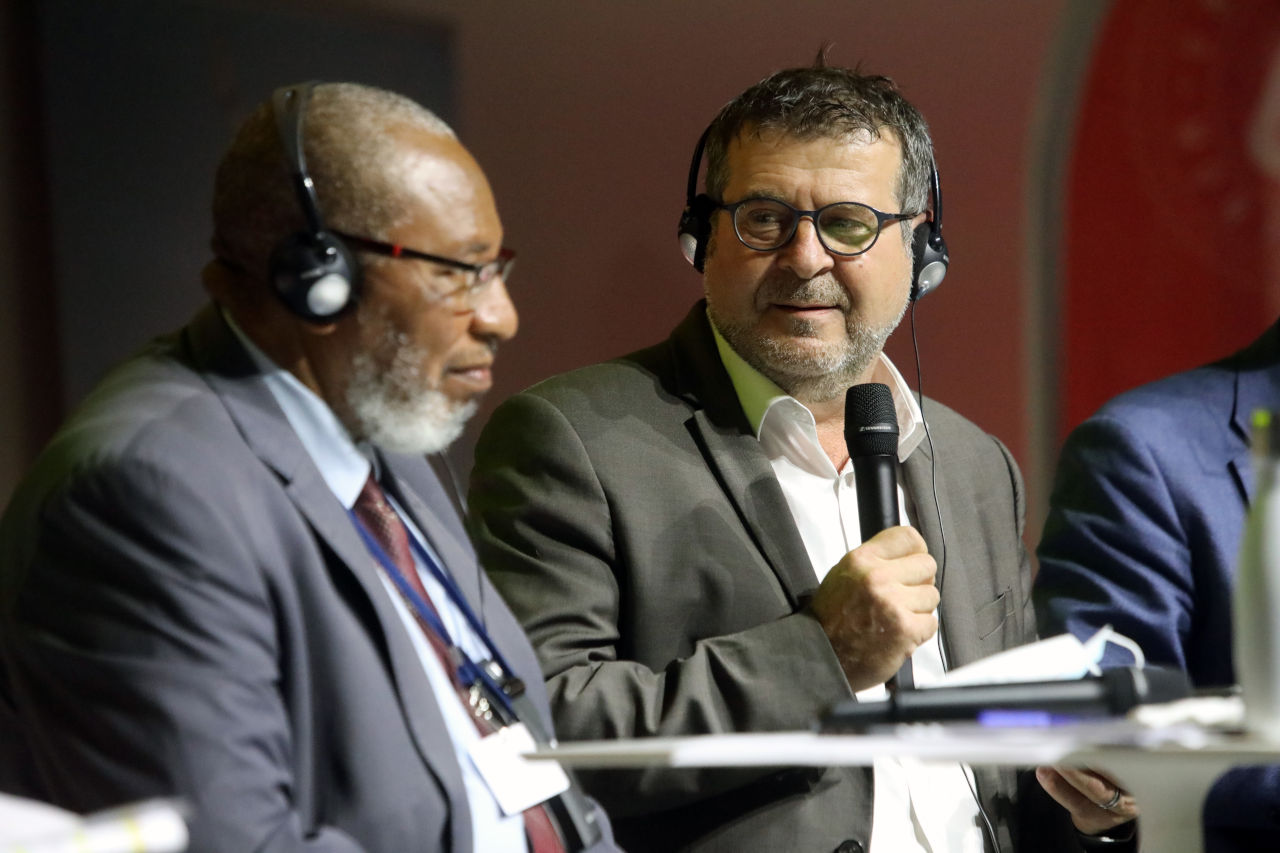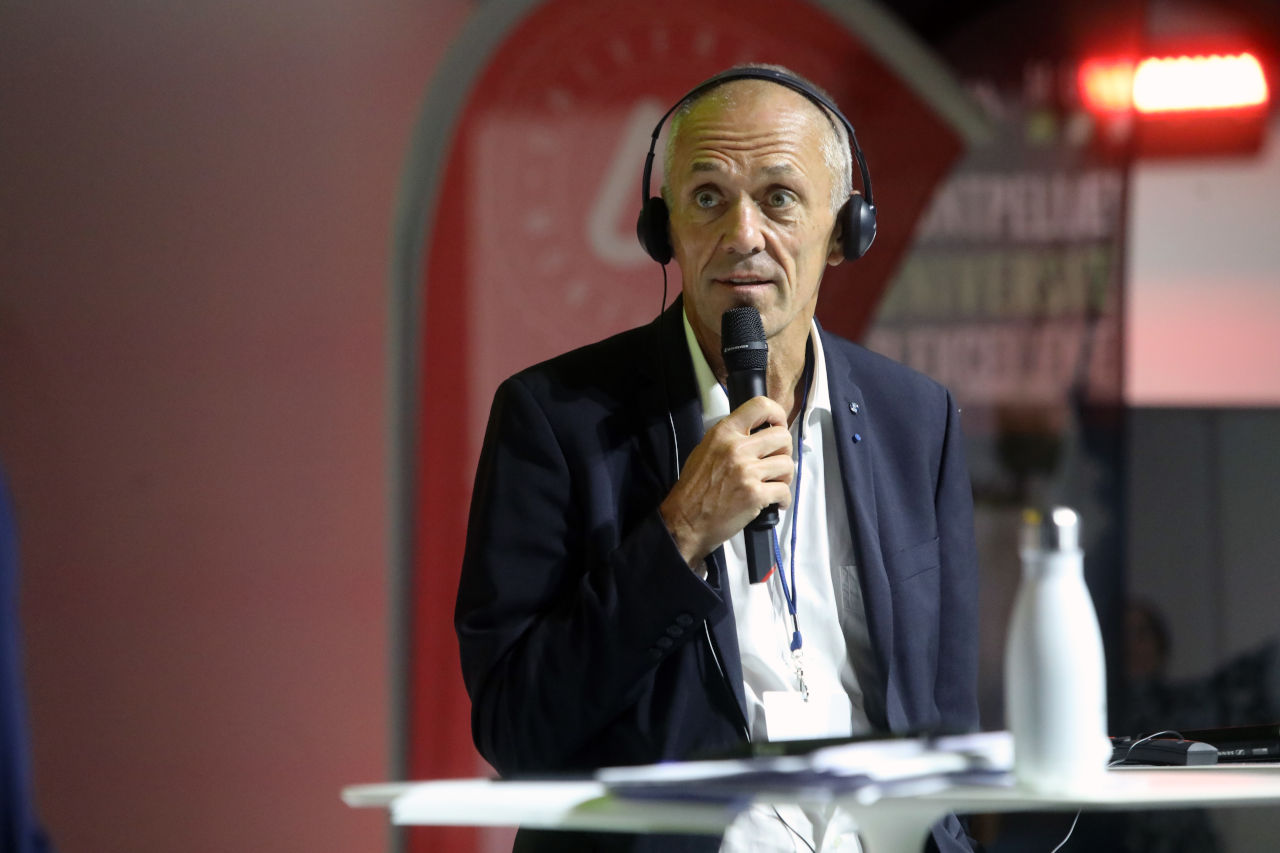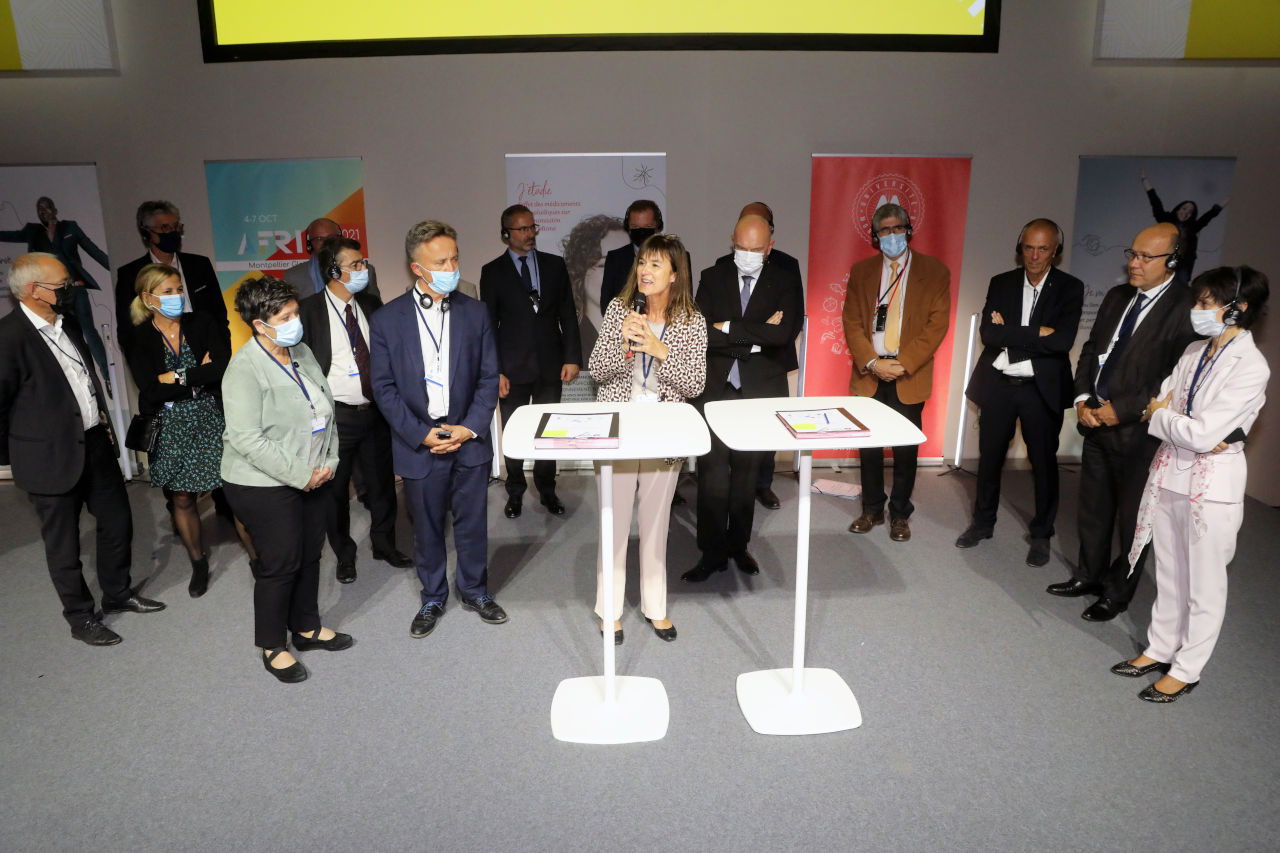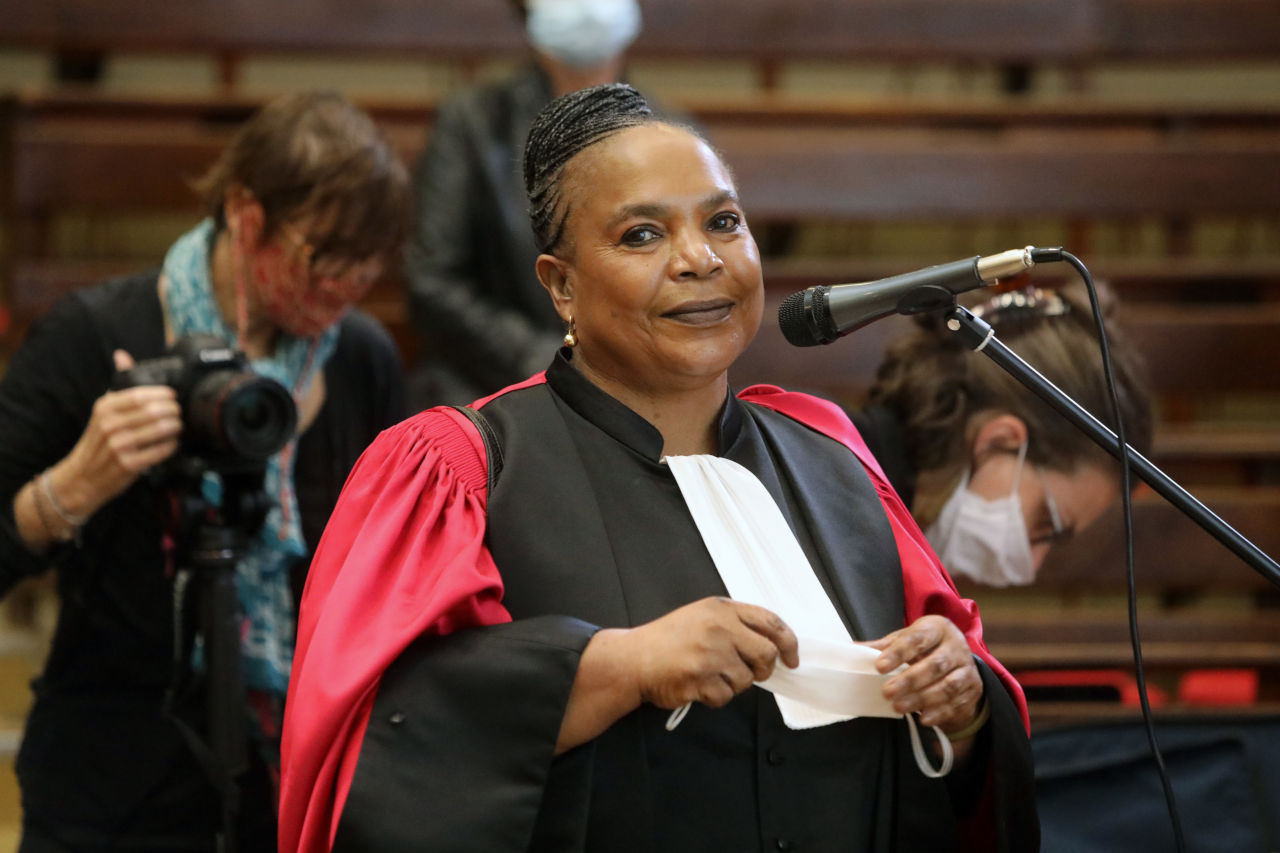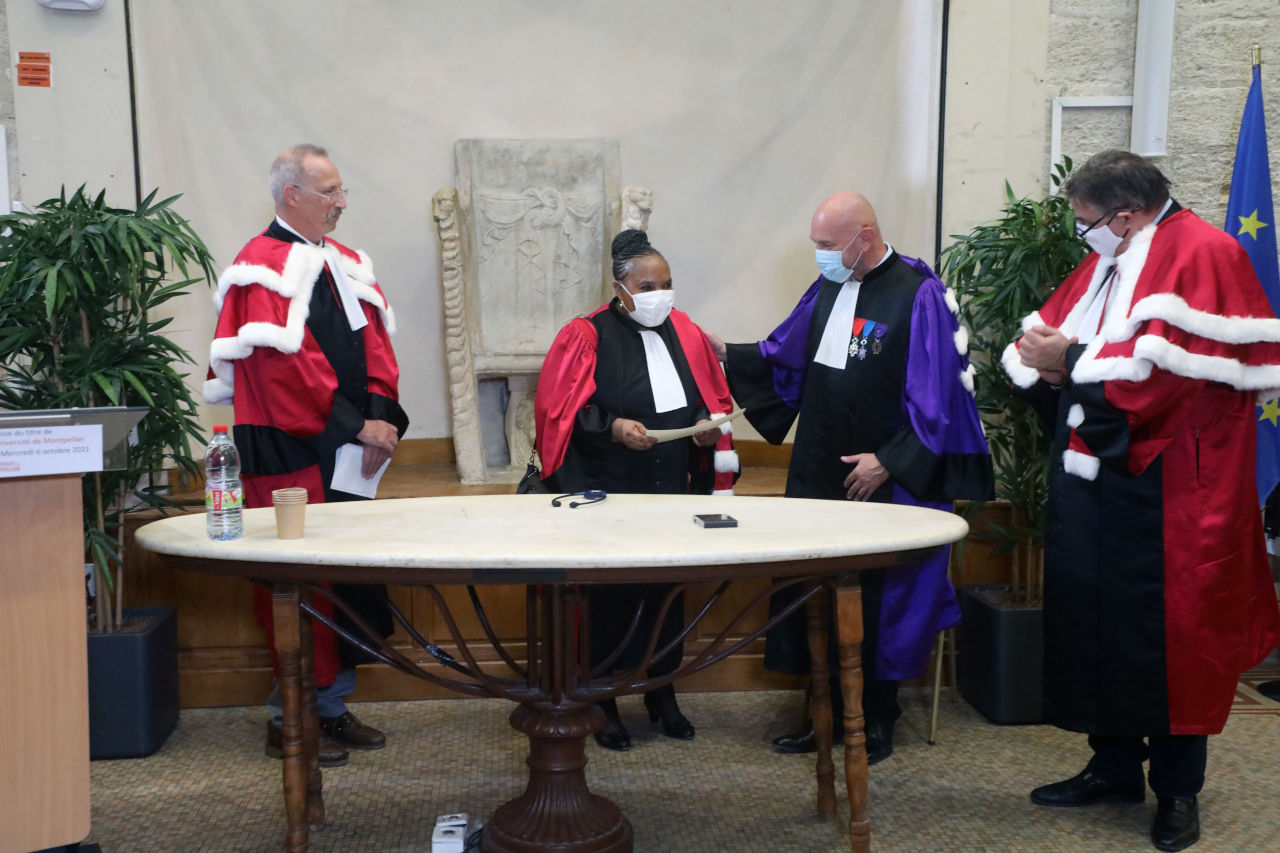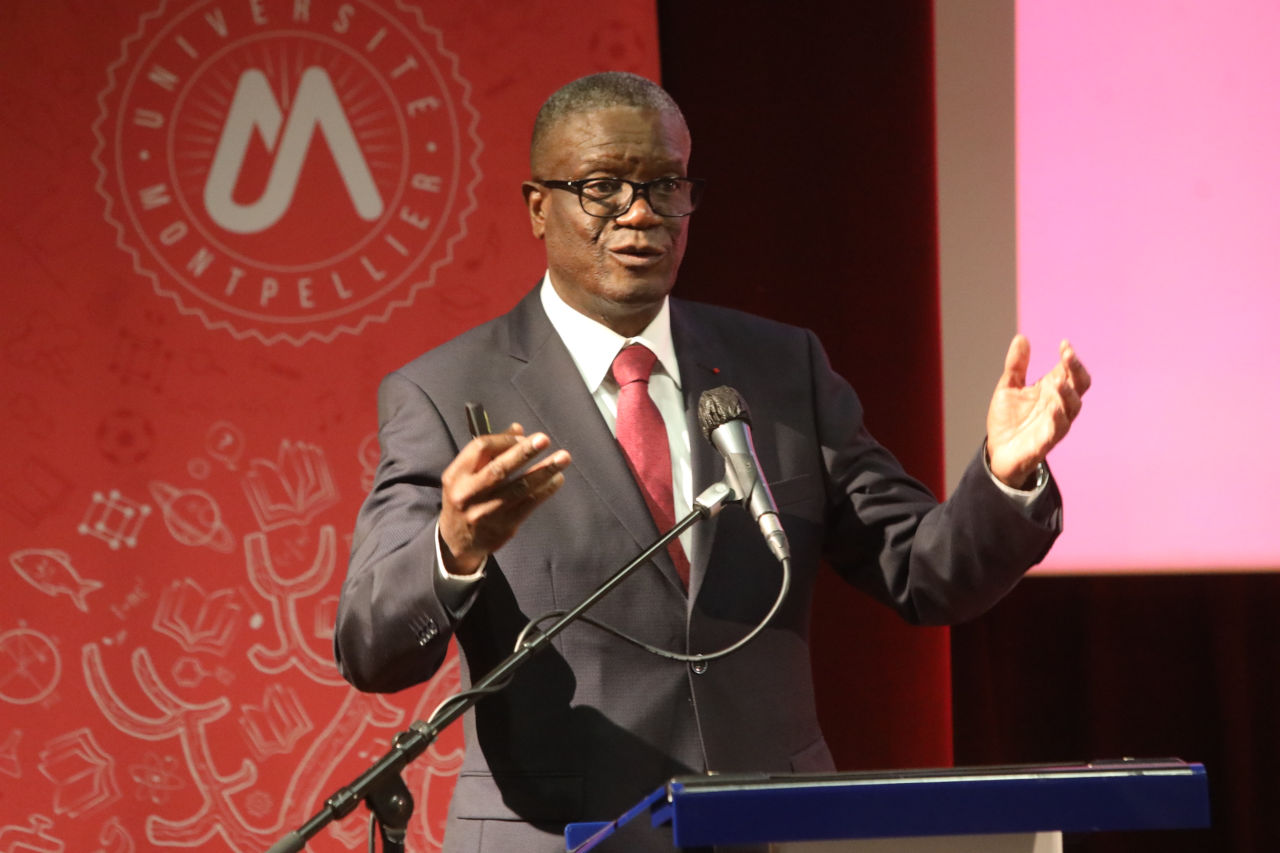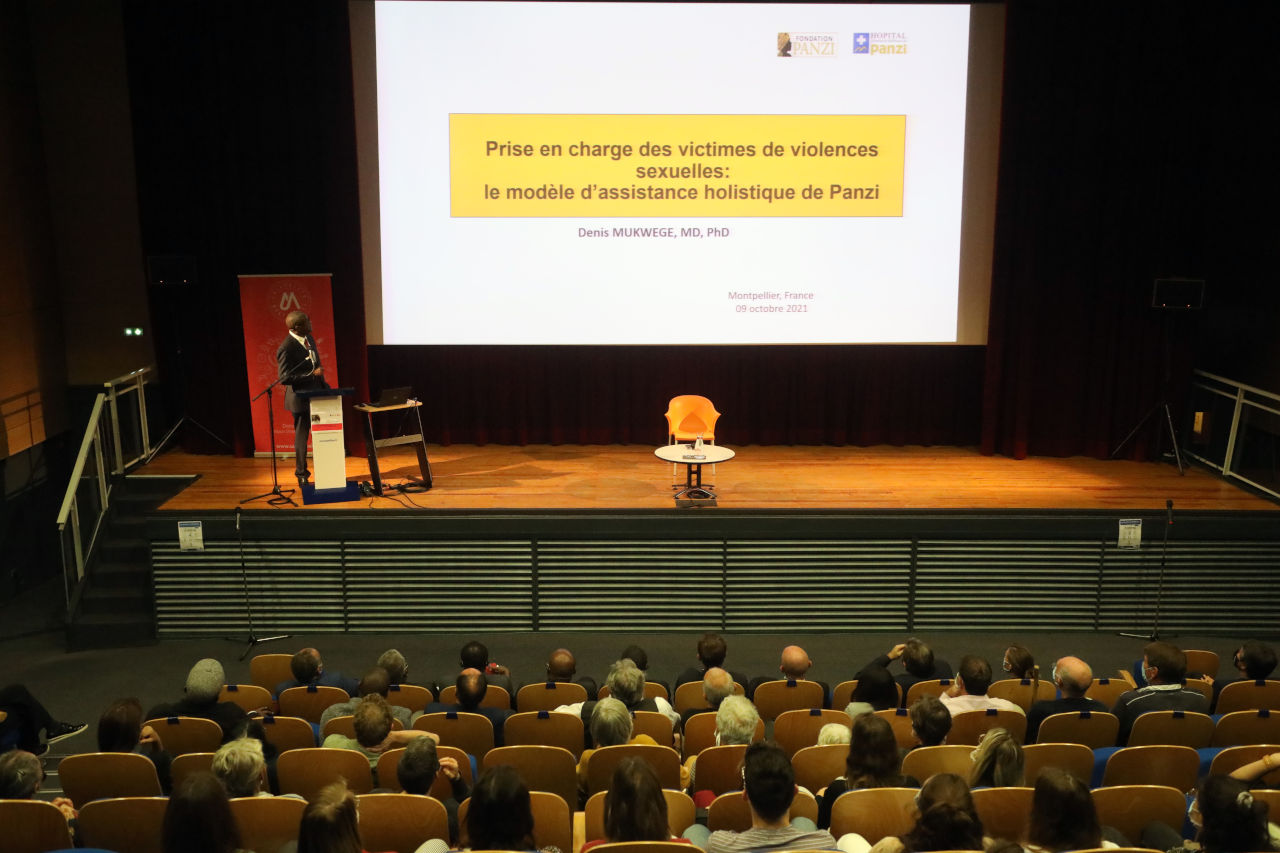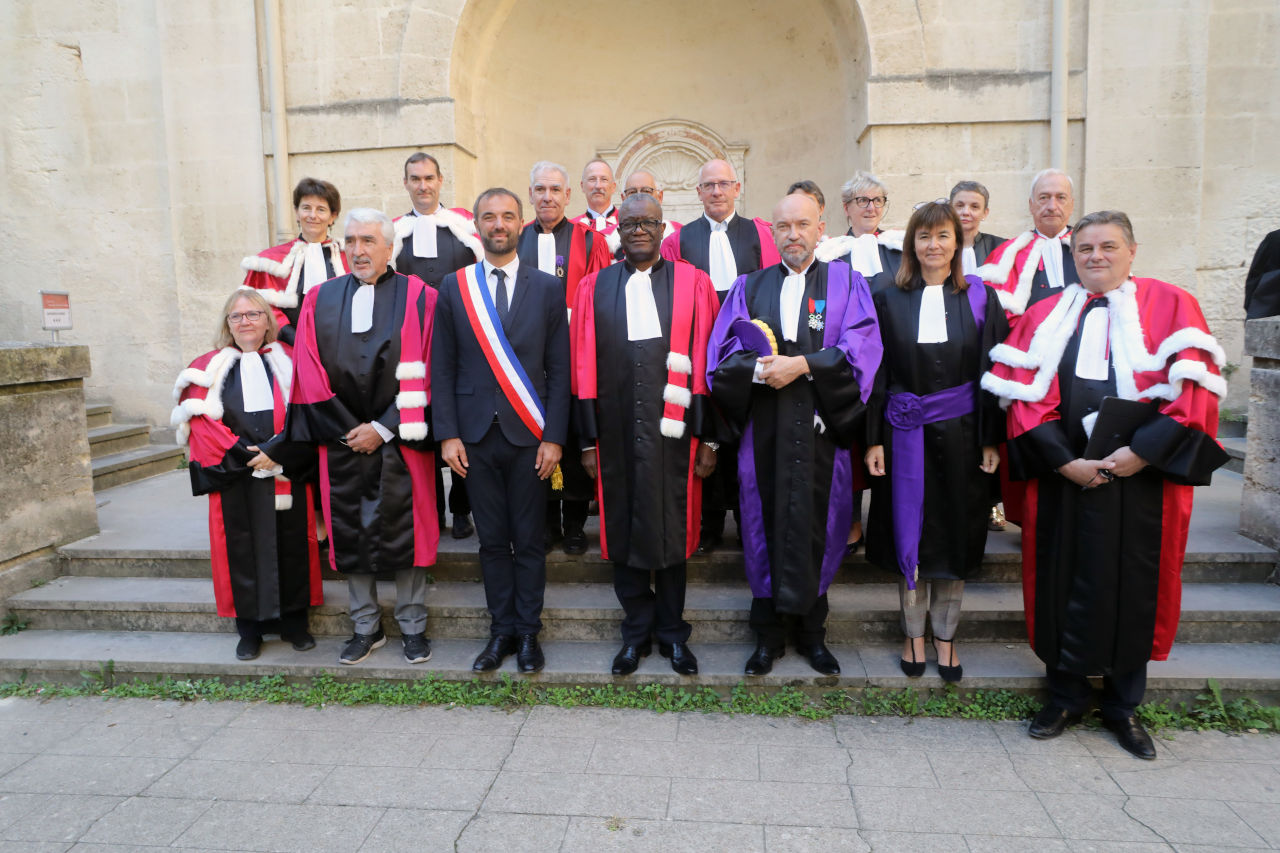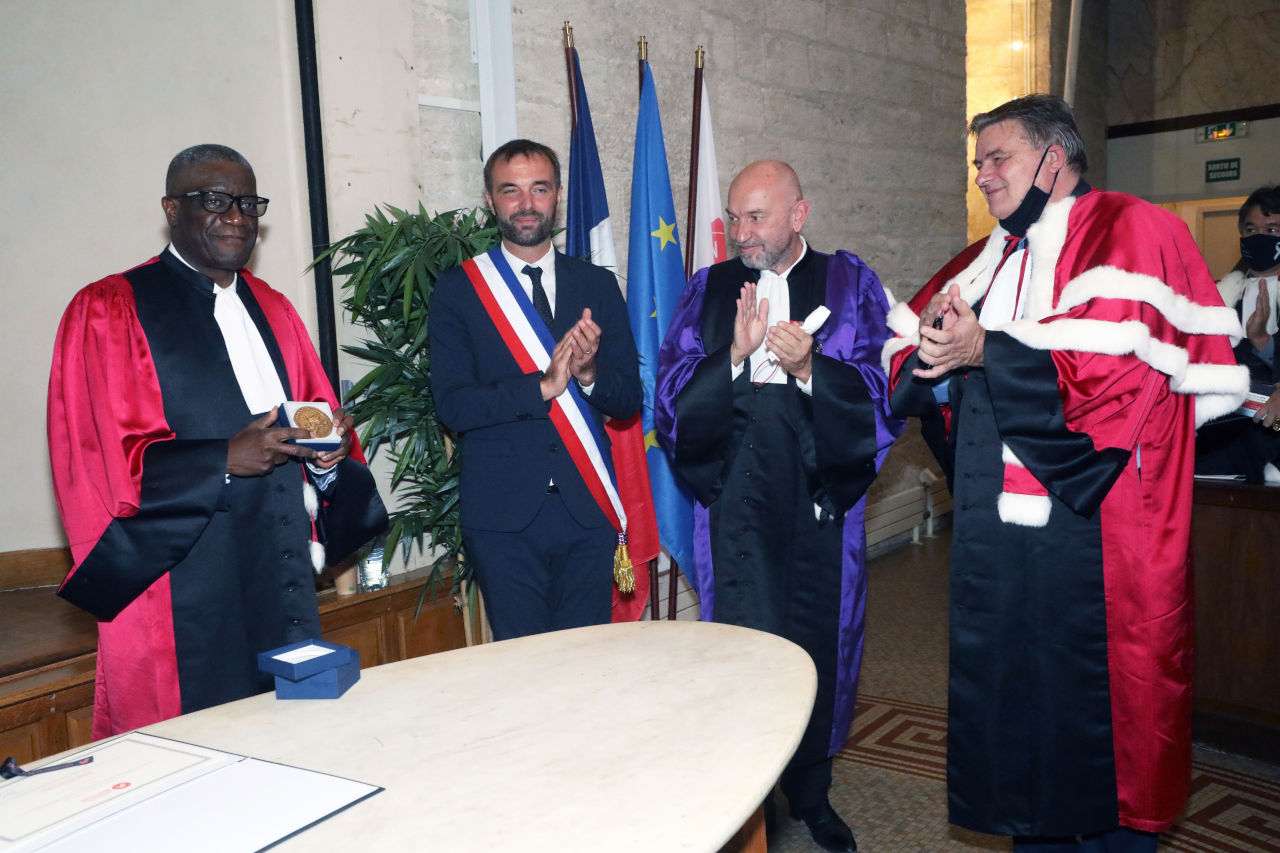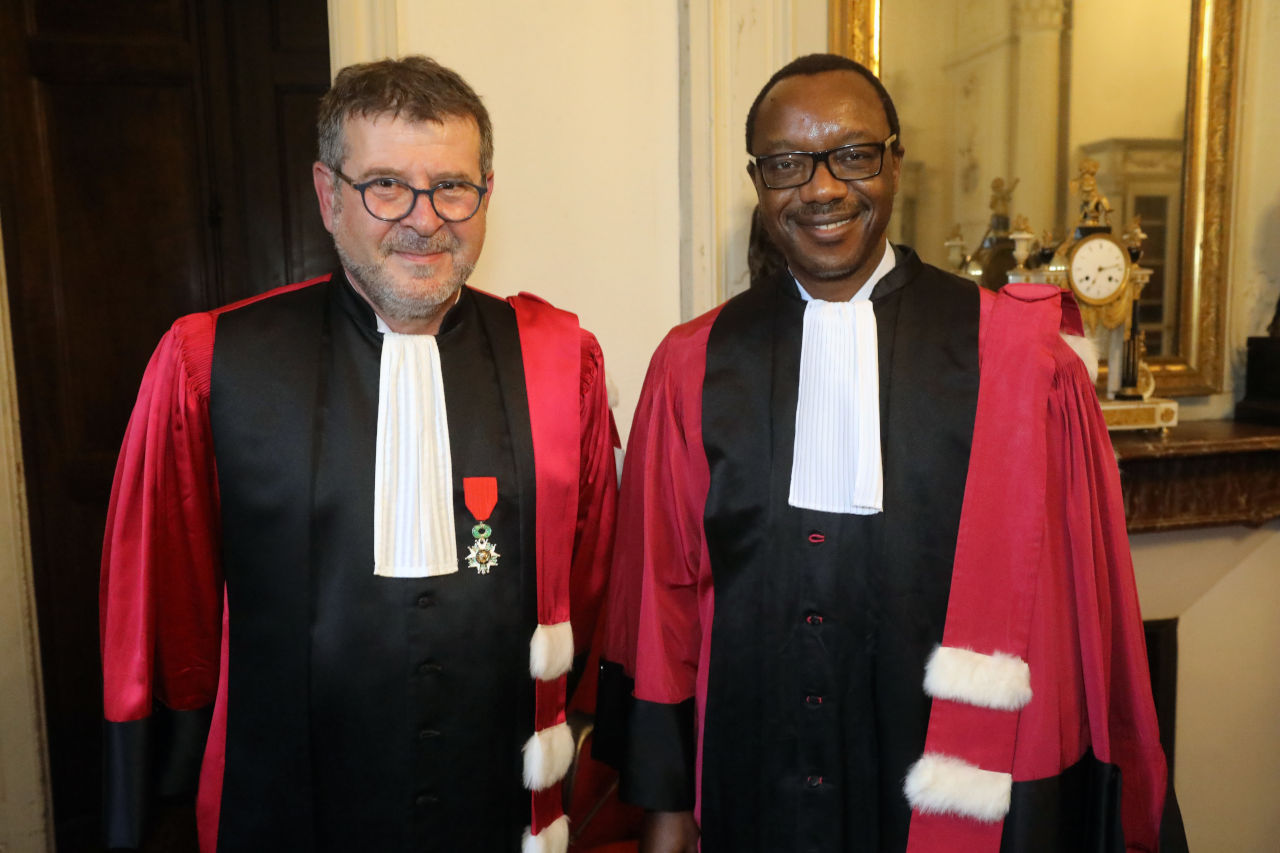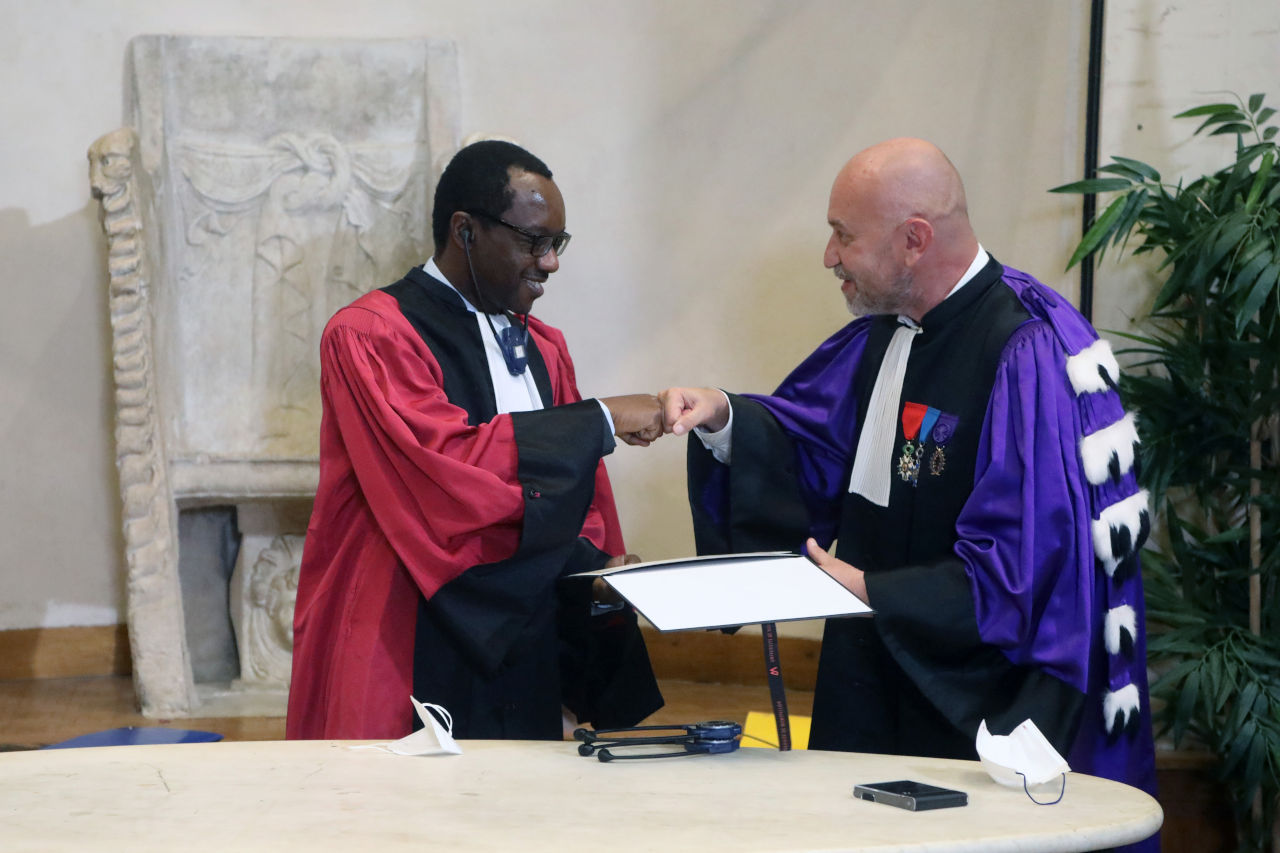Global Days and the New Africa-France Summit in pictures
From October 4 to 7, the University of Montpellier and its partners in the I-Site MUSE project organized the "Montpellier Global Days: Africa 2021"ahead of the Africa-France Summit. These four scientific days brought together a total of more than 2,000 people who came to listen and discuss six key themes. It was also an opportunity to sign the strategic agreement between the Muse partners and to celebrate the three new and prestigious honorary doctors of the University of Montpellier. A look back in pictures.
More than 2,000 people participated in these four days of scientific exchanges, either in person or remotely. Debates and round tables punctuated the first two days of these meetings, which were organized around six main themes: biodiversity; water; food systems; international health and the One Health approach; agroecological transitions; and technologies applied to "feeding, caring for, and protecting."
THEMATIC DAYS ON OCTOBER 4 AND 5
The thematic days on food systems were held on October 4 and 5 at Agropolis International. The roundtable discussions included topics such as "Sustainable Food Systems," "Food Systems and Markets," and "Feeding Africa's Growing Cities. "
In addition to researchers from Muse in Montpellier, these events brought together researchers from Ghana, Burkina Faso, Benin, Tunisia, Morocco, and South Africa, led by Patrick Caron, Vice President of the University of Montpellier in charge of international relations. Representatives from the City of Montpellier and a Senegalese ambassador were also in attendance.
Technology specialists gathered on the Saint-Priest campus on October 4 and 5 to discuss the question " What technologies can be used to treat, feed, and protect?" Many participants from South Africa, Djibouti, Senegal, Niger, and Côte d'Ivoire took part in three roundtable discussions led by Laurent Dusseau (CSU), Lionel Torres (Polytech), Pascal Bonnet (CIRAD), Nicolas Baghdadi, and Isabelle Piot-Lepetit (INRAE).
MUSE members and their African, local, regional, and international partners have established long-standing collaborations. Partners present at CIRAD for these two days devoted to agroecology.
Elisabeth Claverie de Saint Martin, President and CEO of CIRAD.
Agroecology as a means of moving toward sustainability in agricultural sectors? The example of cocoa.
The water-themed days were held under the responsibility of Eric Servat, director of the UNESCO Icireward Center.
Among the specialists who came from all over Africa was Fatimatou Sall from Senegal, representing the Association of Young Water and Sanitation Professionals.
Alongside the round tables, an exhibition on research projects carried out in Africa was held in the lobby of the Institute of Botany.
International partnerships, infectious disease challenges, One Health approaches... Glenda Grey, President and CEO of the South African Medical Research Council (SAMRC), led these two days dedicated to international health.
Alongside Glenda Grey, Philippe Vande Peer, head of the virology and bacteriology department at Montpellier University Hospital and researcher at Inserm, led part of the discussions at the Aimé Schoenig Student Union.
Biodiversity was, of course, a highly anticipated topic. The round tables took place at the Institute of Botany under the leadership of Rutger De Wit (CNRS), Philippe Jarne (CNRS), and Daniel Barthelemy (CIRAD), all from Montpellier.
Allassane Ouattara, professor at the University of Abidjan (Ivory Coast), presented his work on the biodiversity of aquatic ecosystems, integrated water resource management, aquaculture development, and fisheries management.
THE CROSS-FUNCTIONAL DAYS ON OCTOBER 6 AND 7
After two days of thematic discussions, numerous experts gathered once again at the Faculty of Pharmacy and then on stage at the Arena for a summary exercise and further debates. Among them were:
Nadine Andrieu, agronomist at CIRAD, for the agroecology group's report.
Prisca Mugabe from the University of Zimbabwe, rapporteur for the biodiversity group.
Oula Amrouni, a Tunisian researcher at the National Institute of Marine Science and Technology.
Nicolas Meda, former Minister of Health in Burkina Faso and medical epidemiologist, spoke on behalf of the "International Health" group.
Aboubaker Hassan, from Djibouti's Ministry of Higher Education and Research, presented the summary of the group "Technologies for feeding, caring for, and protecting."
Many leading figures from African research and civil society gathered around Tawana Kupe (see honorary doctorate), including: Mboo-Tchouawou Michèle from African Women in Agricultural Research and Development in Kenya. Joyene Isaacs, from ARC in South Africa; Alpha Kabinet Keita, from the Center for Research and Training in Infectious Diseases in Guinea; Kako Nubukpo, from the West African Economic Union; Alice Ruhweza from WWF Africa; and others.
Sina Schlimmer from the Sub-Saharan Africa Center at the French Institute for International Research
The afternoon was then devoted to a cross-debate between civil society actors and researchers on various topics, including the Great Green Wall. French Minister of Agriculture Julien de Normandie participated in the debate.
The debate on development through higher education brought together students around Moussa Diaby from the Houphouët Boigny National Polytechnic Institute in Côte d'Ivoire and Serigne Magueye Gueye, Director General of the Franco-Senegalese campus.
Valérie Verdier, President and CEO of IRD, participated in the round table discussion: " What are the prospects and trajectories for development through research?"
Habiba Chaabouni, from the Tunisian Academy of Sciences, was present for the round table discussion entitled " Building tomorrow's intelligence together for Africa and the world."
Conclusion of Montpellier Global Days with Philippe Augé, University of Montpellier, Sophie Béjean, Rector of the Occitanie Academy, Michaël Delafosse, Montpellier Méditerranée Métropole & City of Montpellier
The New Africa-France Summit (October 8)
Higher education, research, and innovation were at the heart of the program put in place for the New Africa-France Summit at the Arena on October 8. Watch the video.
Throughout these two days of presentations and reflection, visitors flocked to the 300 m² space dedicated to ESRI.
Astou Camara from the Senegalese Institute for Agricultural Research, Prisca Mugabe from the University of Zimbabwe, and Abdoulaye Touré from the Guinea Center for Research and Training in Infectious Diseases.
Philippe Augé at the Arena during the summary day.
Philippe Nérin from SATT AxLR was present alongside Bouna Kane, director of Simplon Afrique, a start-up offering training in digital professions.
Students with Siaka Koné from the Houphouët Boigny National Polytechnic Institute (Ivory Coast) and Serigne Magueye from the Franco-Senegalese Campus
Patrick Caron, Deputy Vice President for International Affairs at the UM, talks with Youba Sokona, Vice Chair of the IPCC
Antoine Petit, CEO of the CNRS
The ESRI theme of the New Africa-France Summit concluded with the signing of a strategic agreement between the MUSE project partners in the presence of the President of the UM and all the CEOs, directors of schools, research organizations, and partner university hospitals, as well as Sophie Béjean, Rector of the Occitanie Academic Region.
HONORARY DOCTORATES
These Global Days-Africa 2021 also provided an opportunity to award honorary doctorates from the University of Montpellier to three leading figures in African research.
Chipepo Kankasa is a pediatrician in Zambia, where she works at Lusaka Hospital. Watch the video.
It was Philippe Augé who presented him with the honorary degree, following a proposal by Philippe Vande Peer (left in the photo), a doctor specializing in the fight against AIDS in Africa. Watch the video.
Denis Mukwege, nicknamed " the man who repairs women," is a Congolese gynecologist and founder of Panzi Hospital. This facility specifically treats women who have been victims of rape and sexual assault committed in the context of war. Denis Mukwege was awarded the Nobel Peace Prize in 2018.
It was in the Rabelais Room that the Congolese gynecologist gave a lecture to present his latest book , entitled La force des femmes (The Strength of Women), in which he describes the method developed at Panzi Hospital.
An honorary doctorate and honorary citizen of Montpellier, the ceremony took place in the presence of Rector Sophie Béjean, Mayor Michaël Delafosse, President Philippe Augé, Dean Mondain, and numerous vice presidents and members of the Faculty of Medicine. Watch the video.
Tawana Kupe (right) and Patrick Caron, Vice President for International Affairs. Tawana Kupe is a Zimbabwean-South African academic. He is President ofthe University of PretoriainSouth Africa and a specialist in media studies and journalism. Watch the video.
Tawana Kupe and Philippe Augé at the ceremony. Watch the video.
